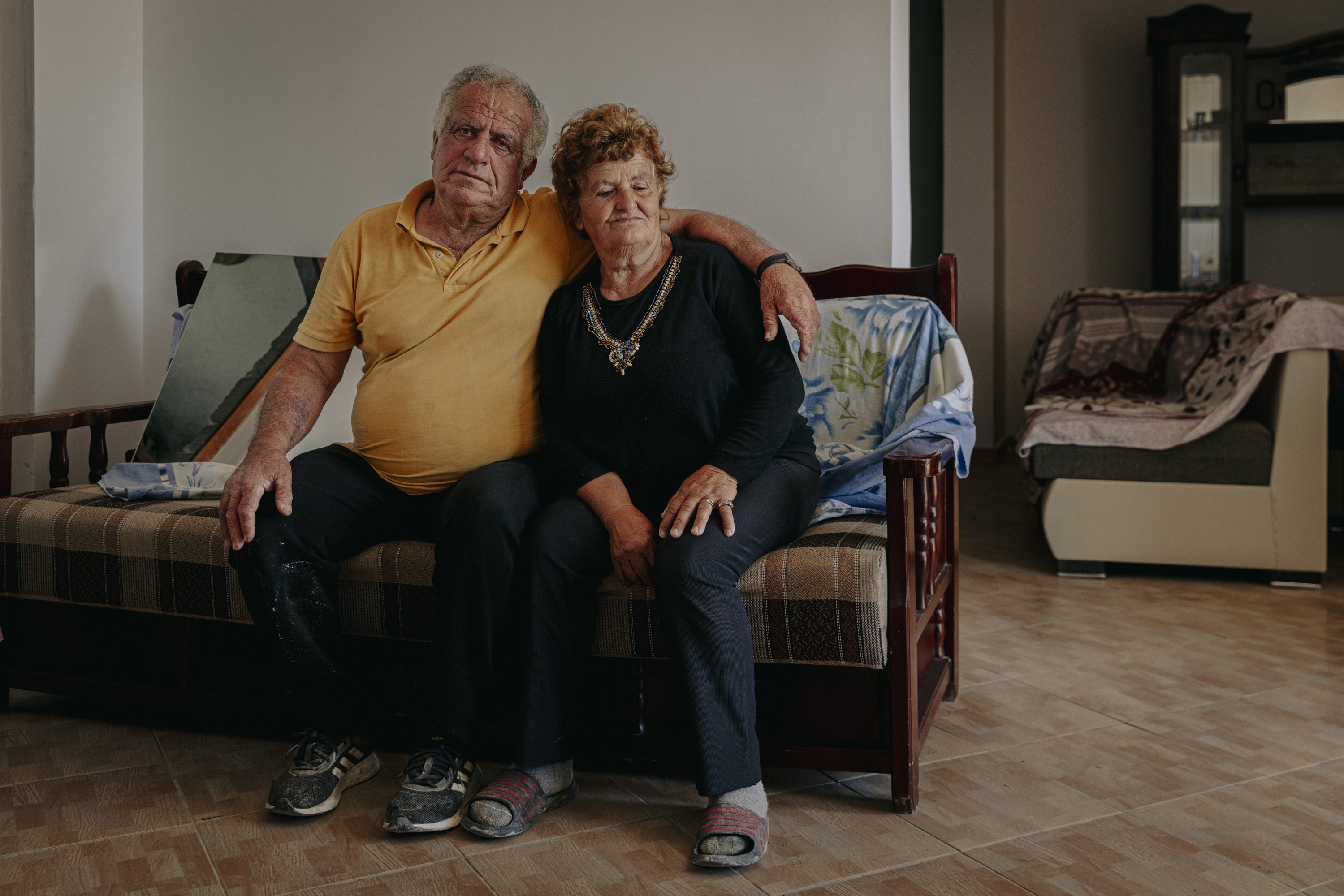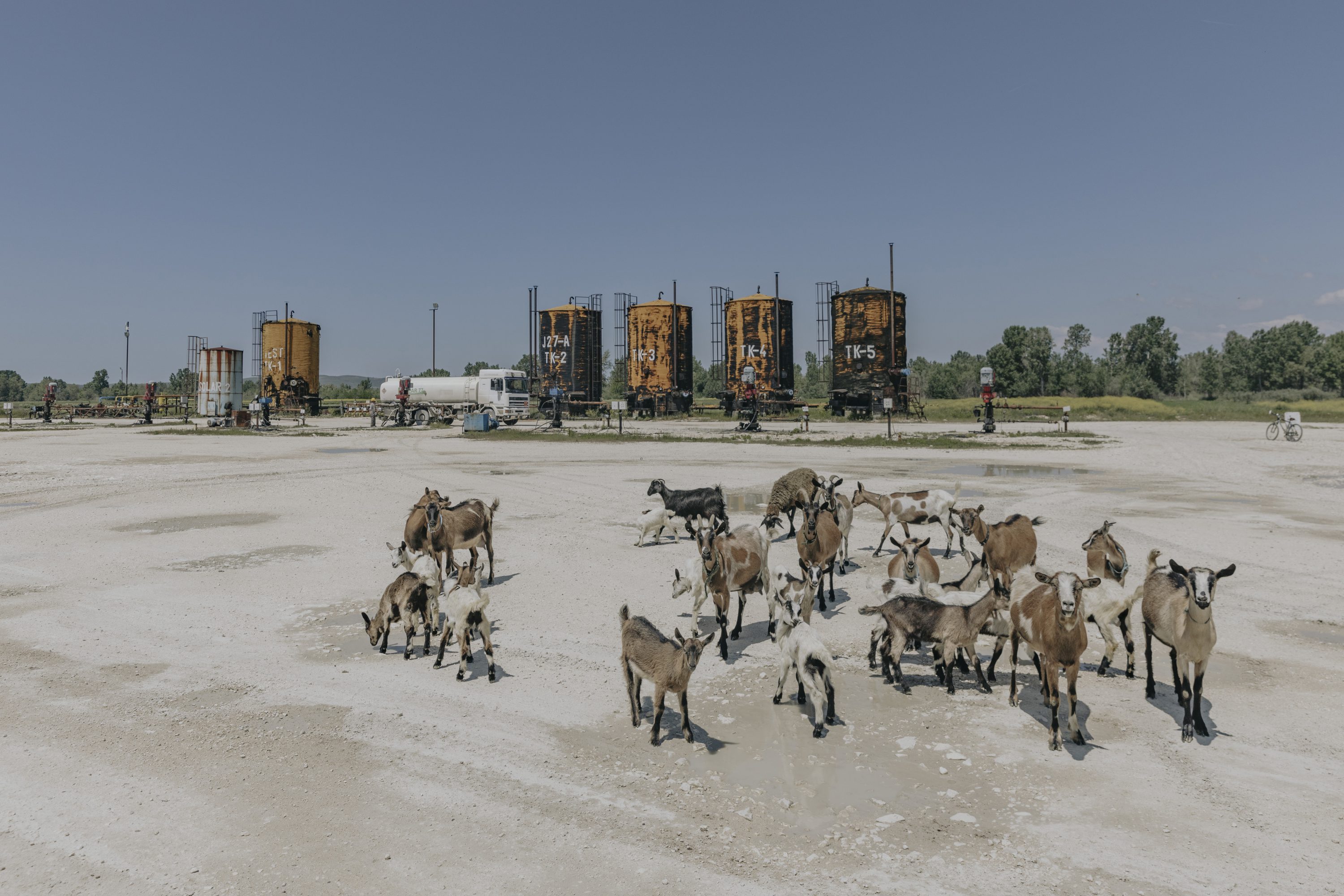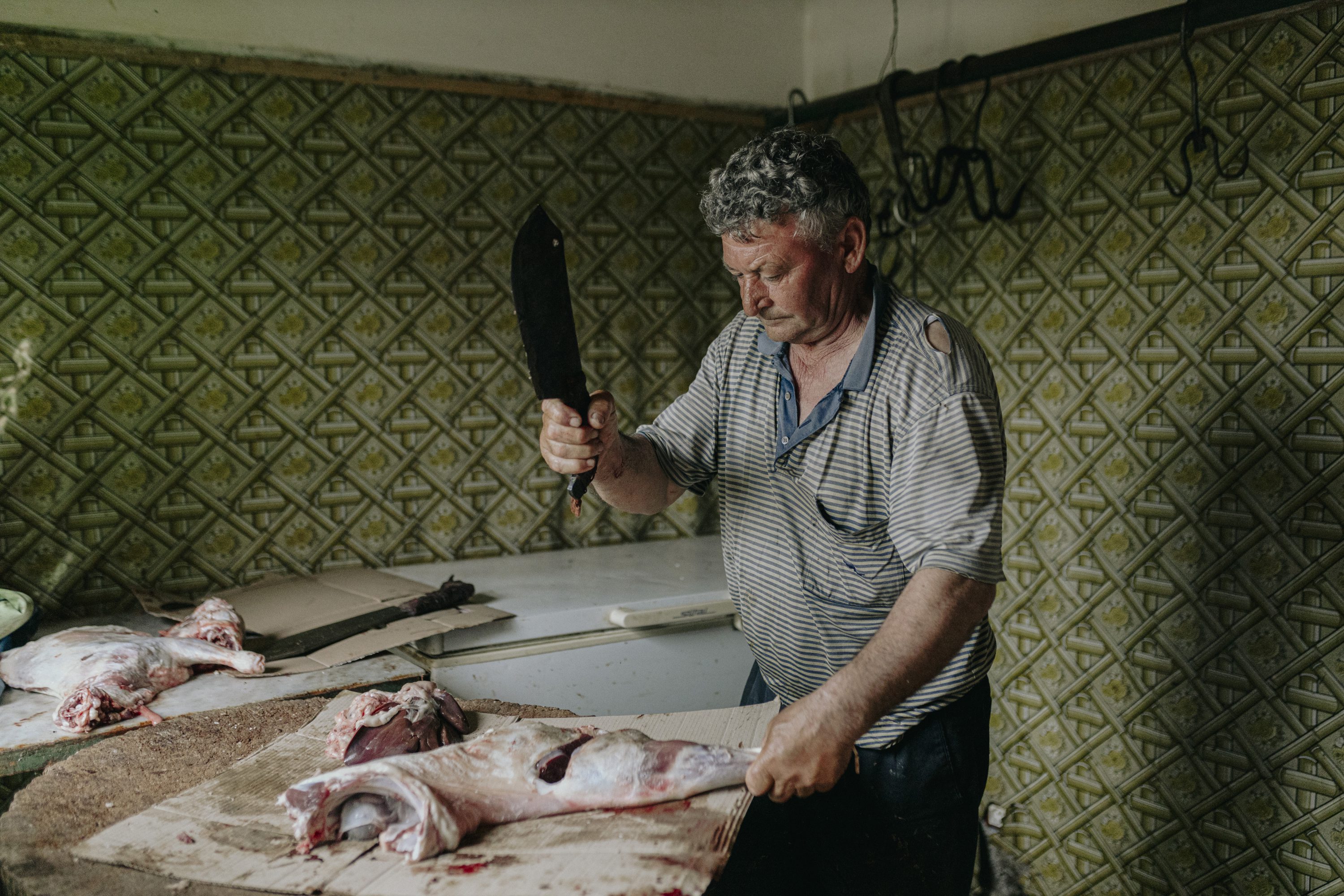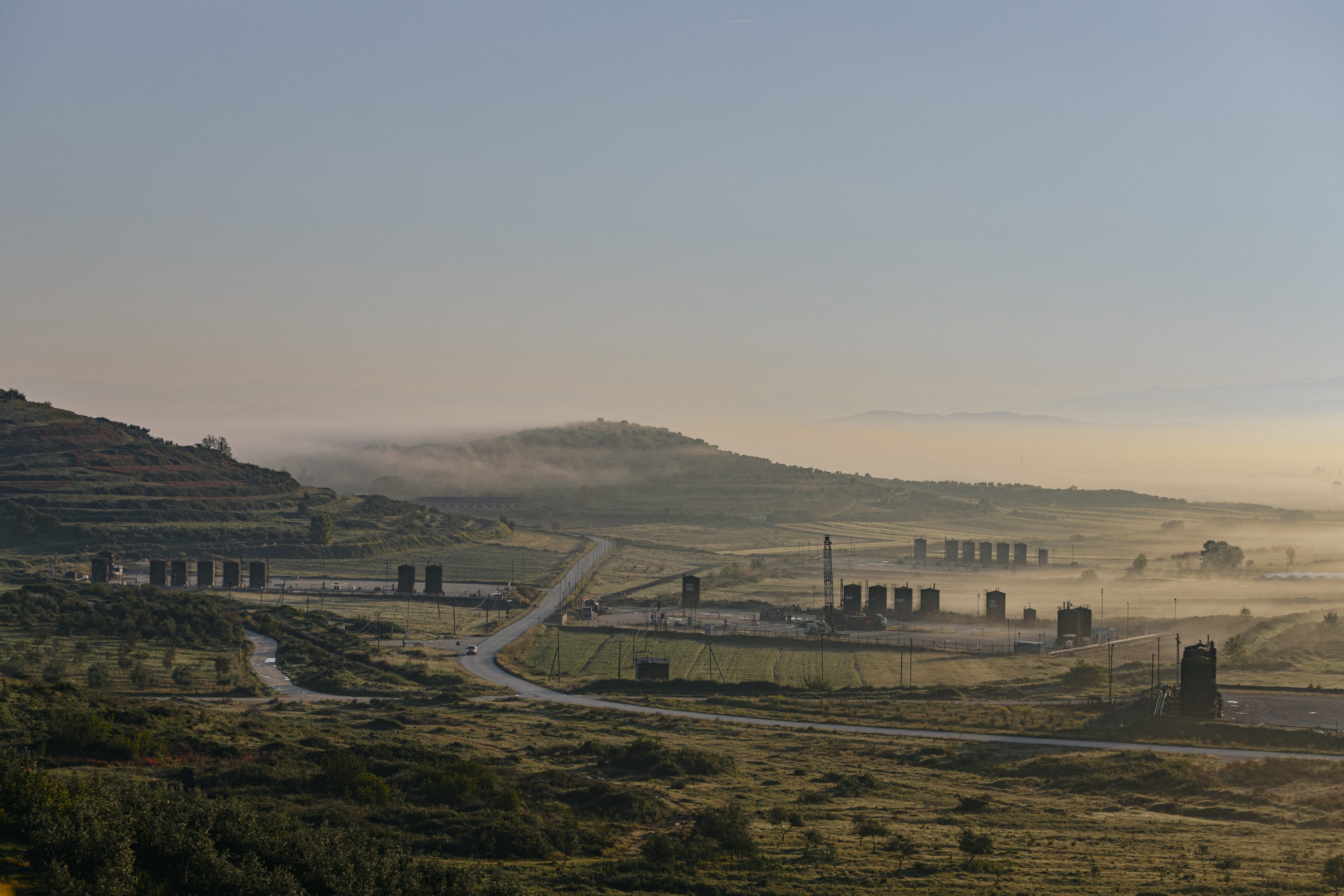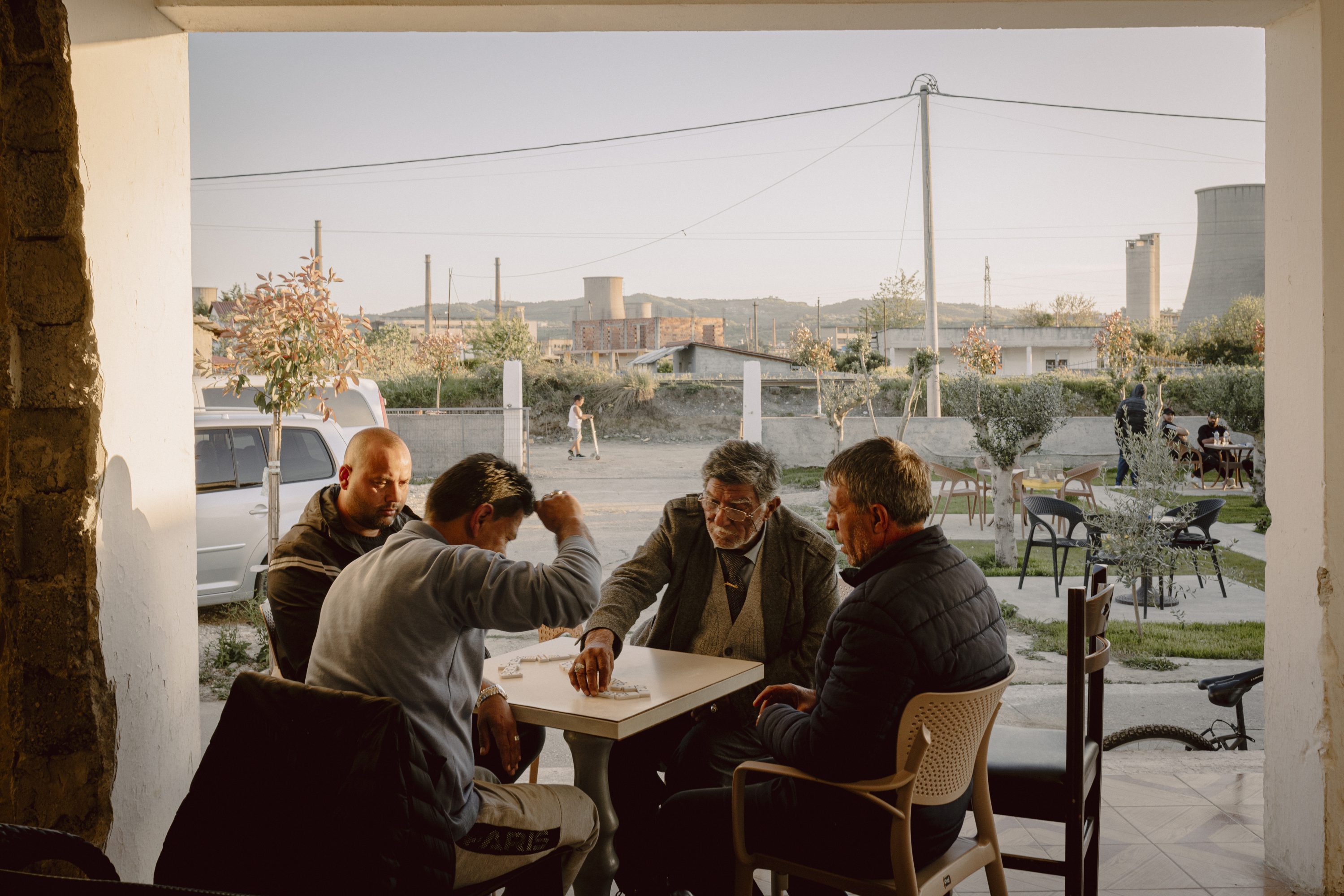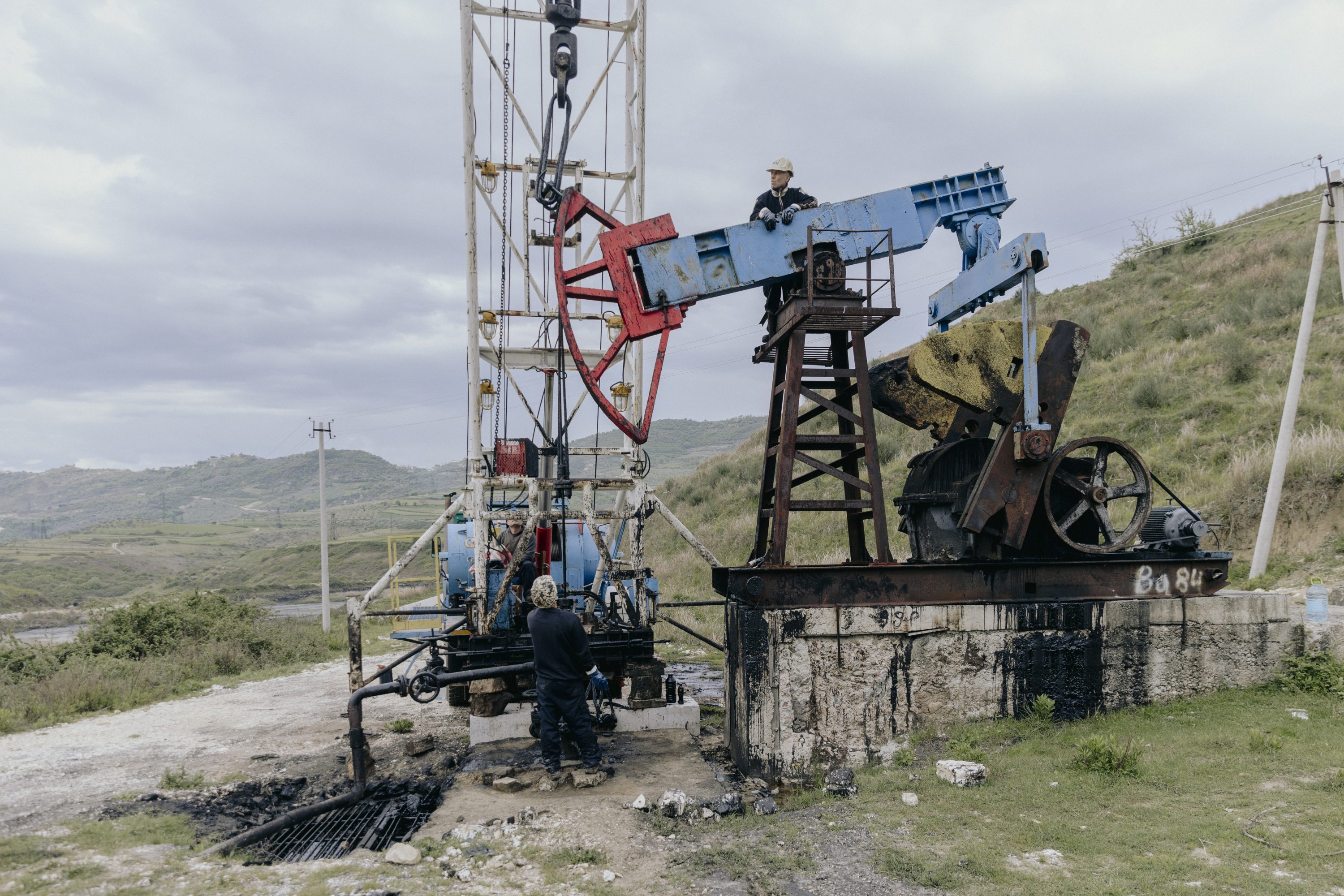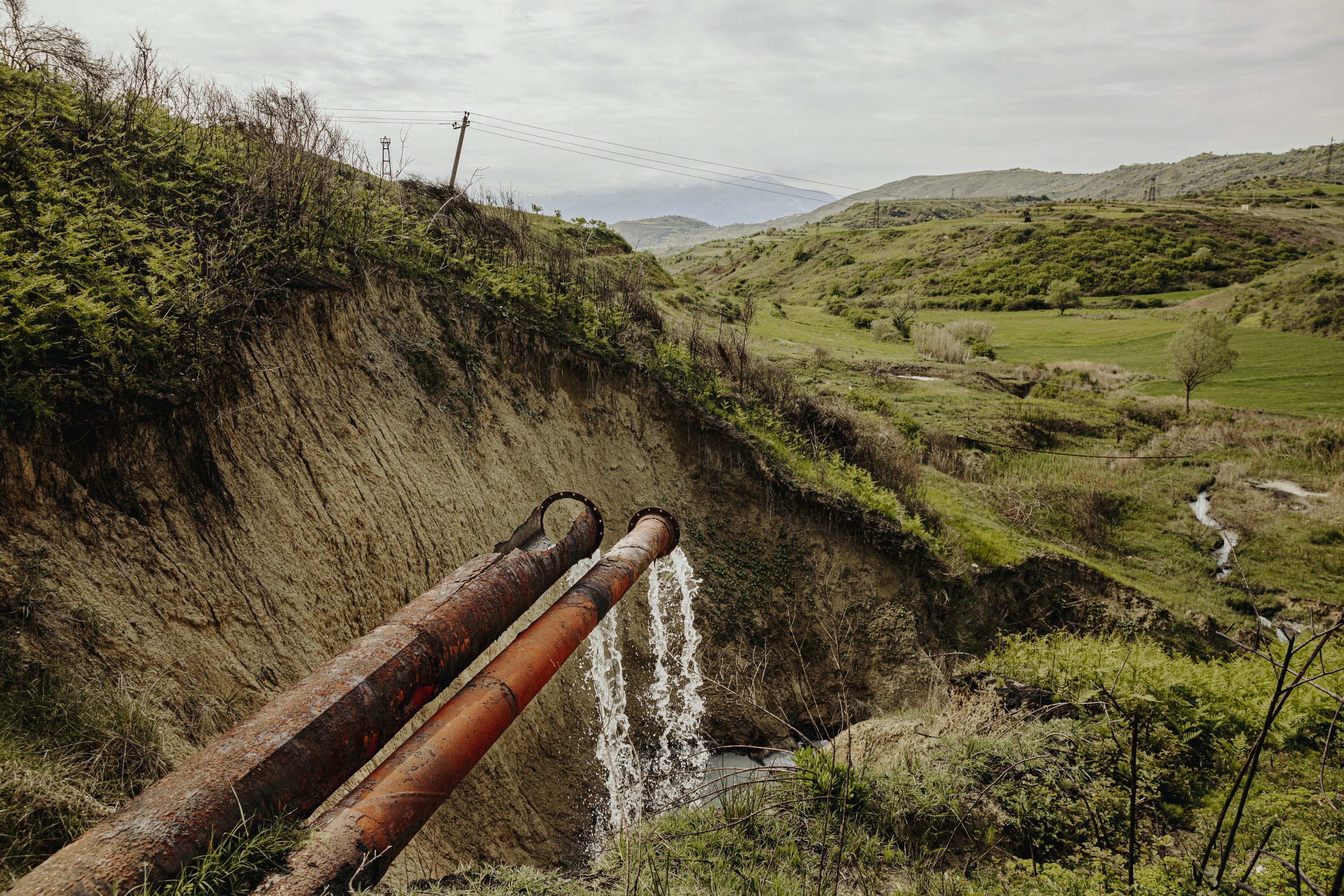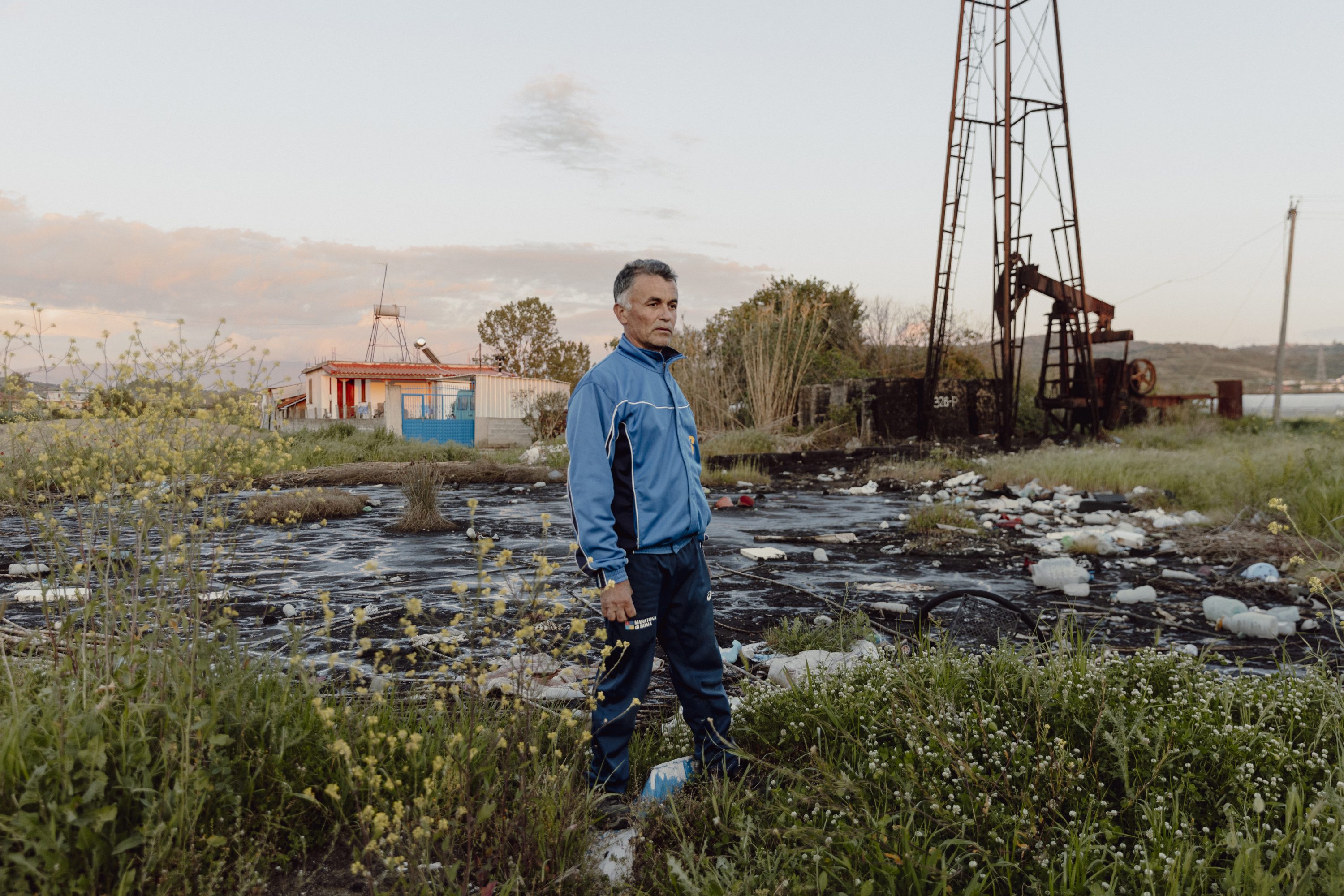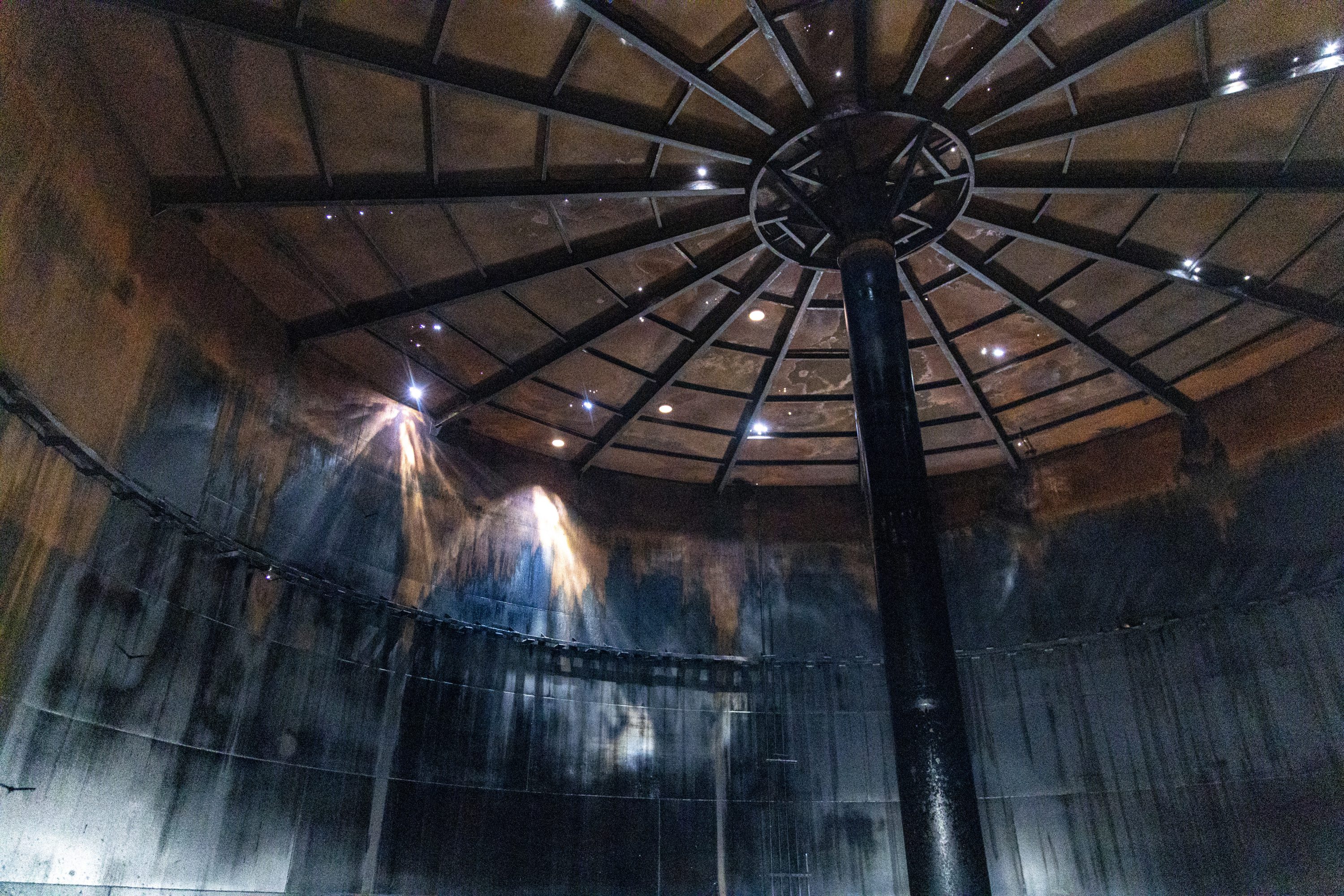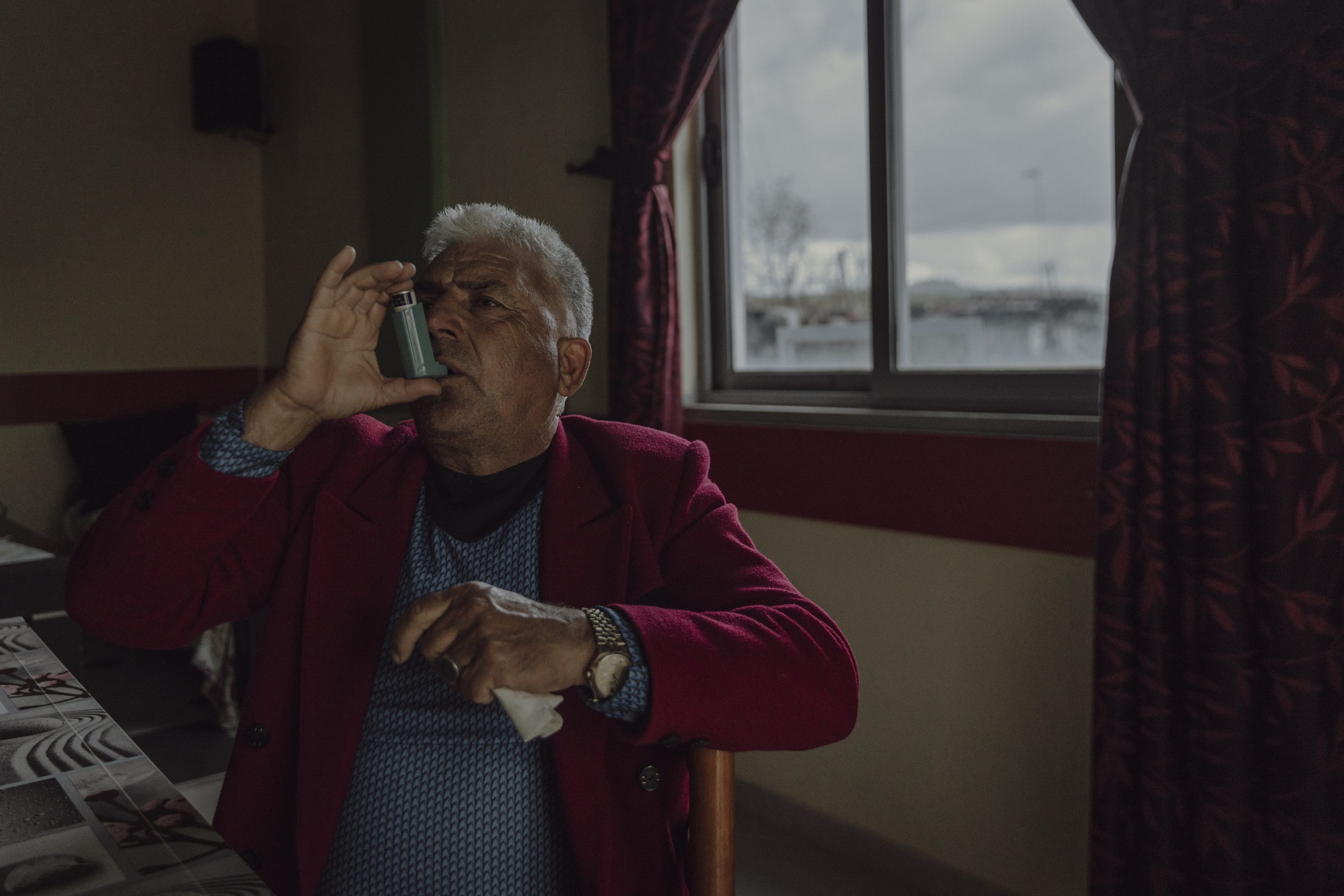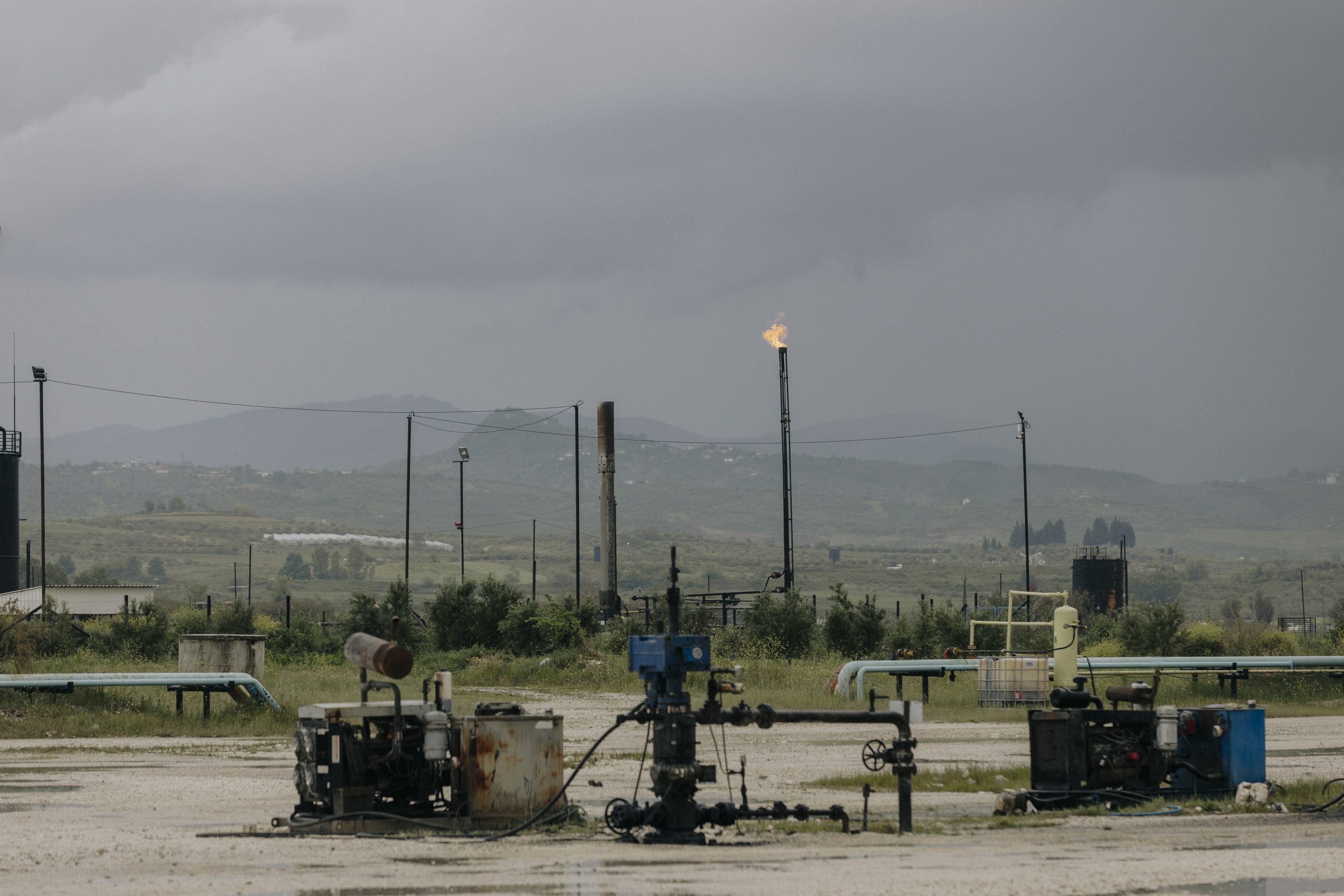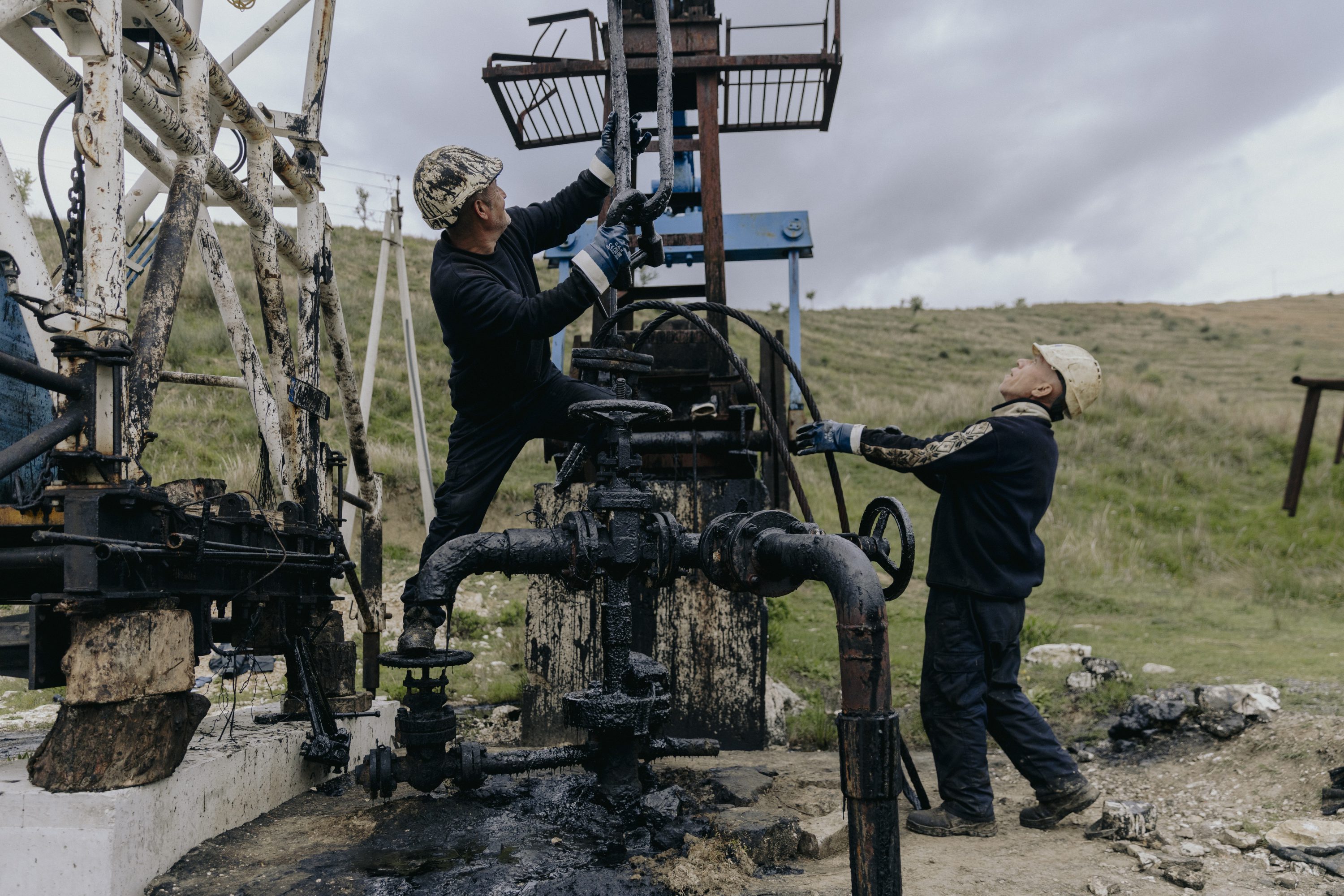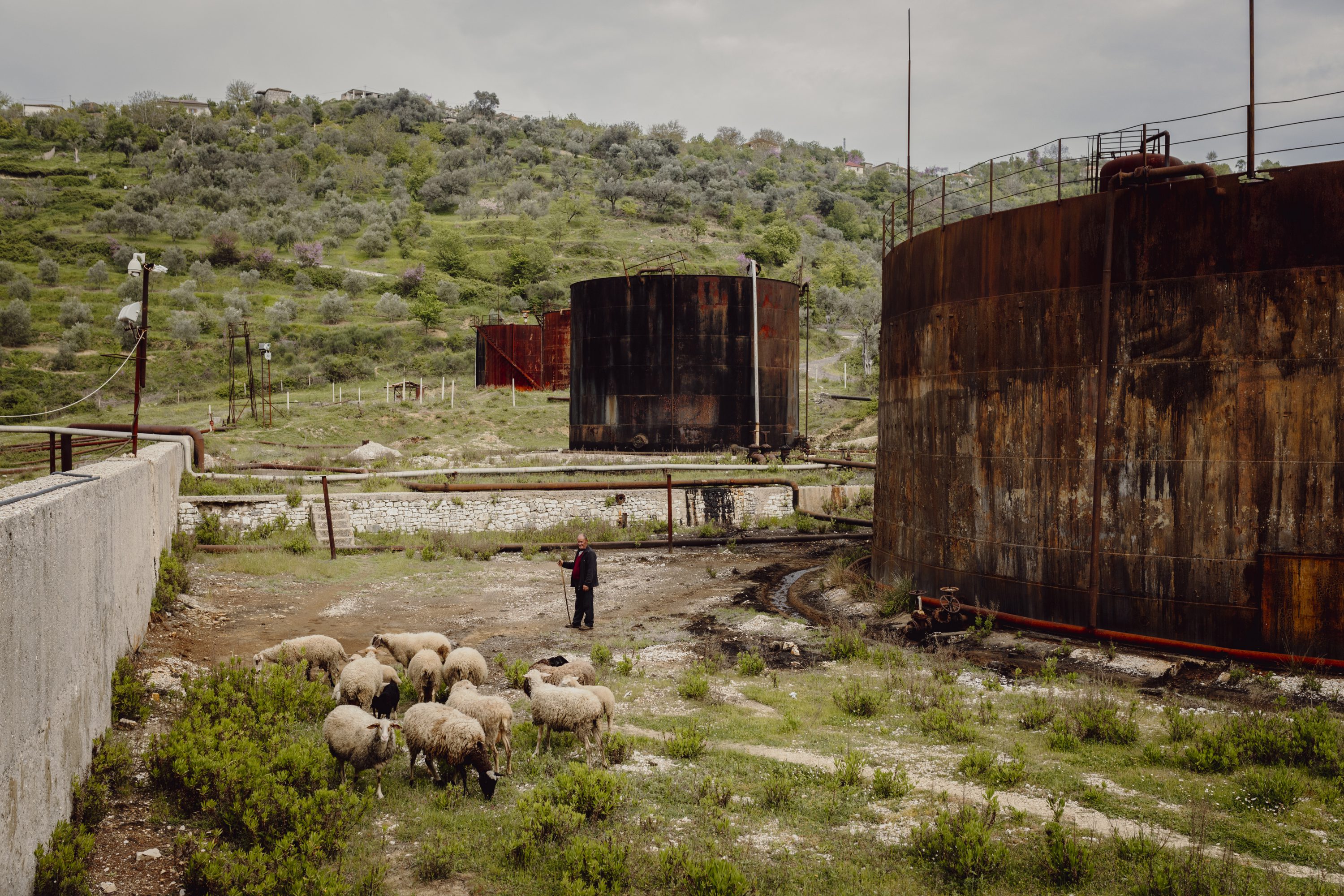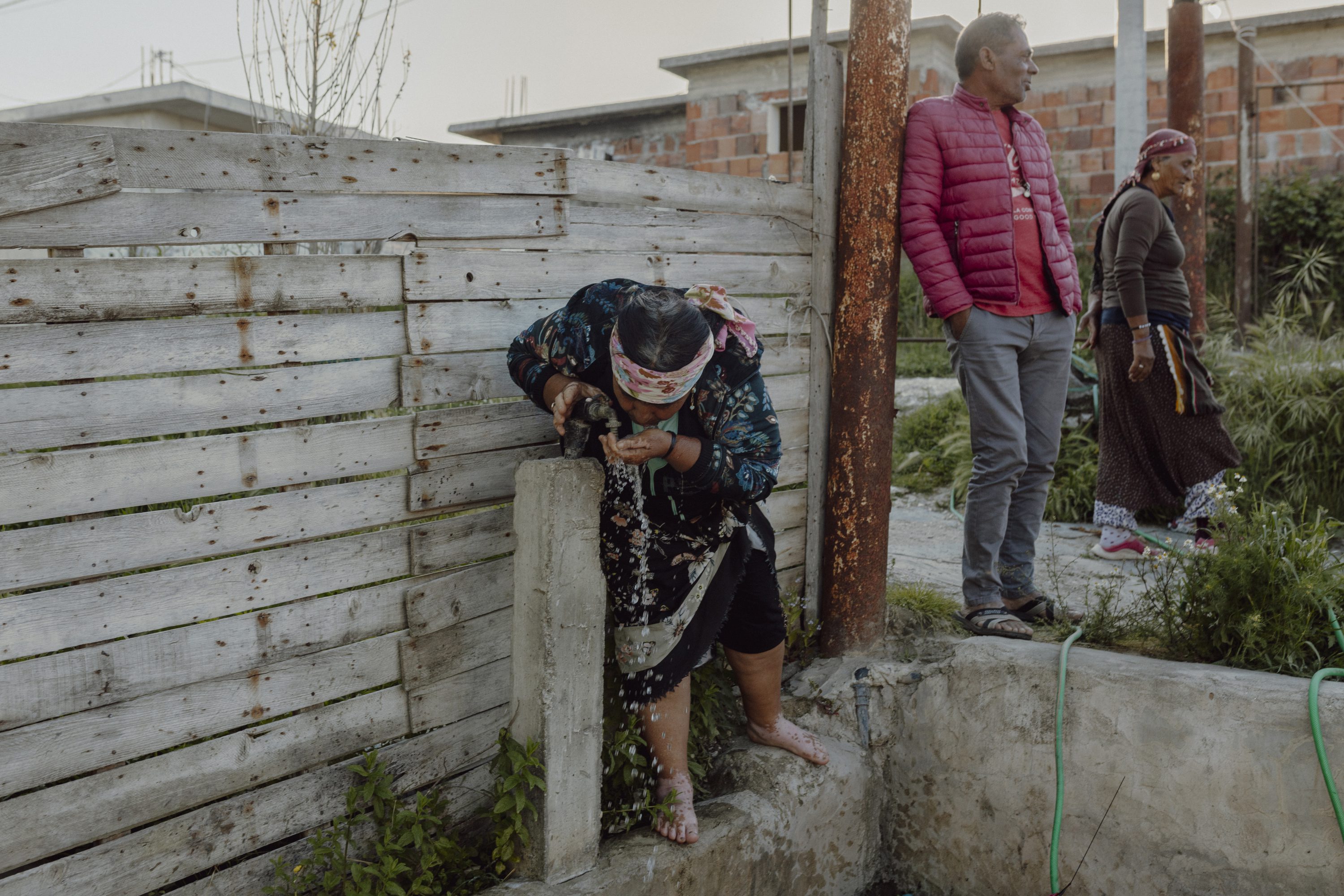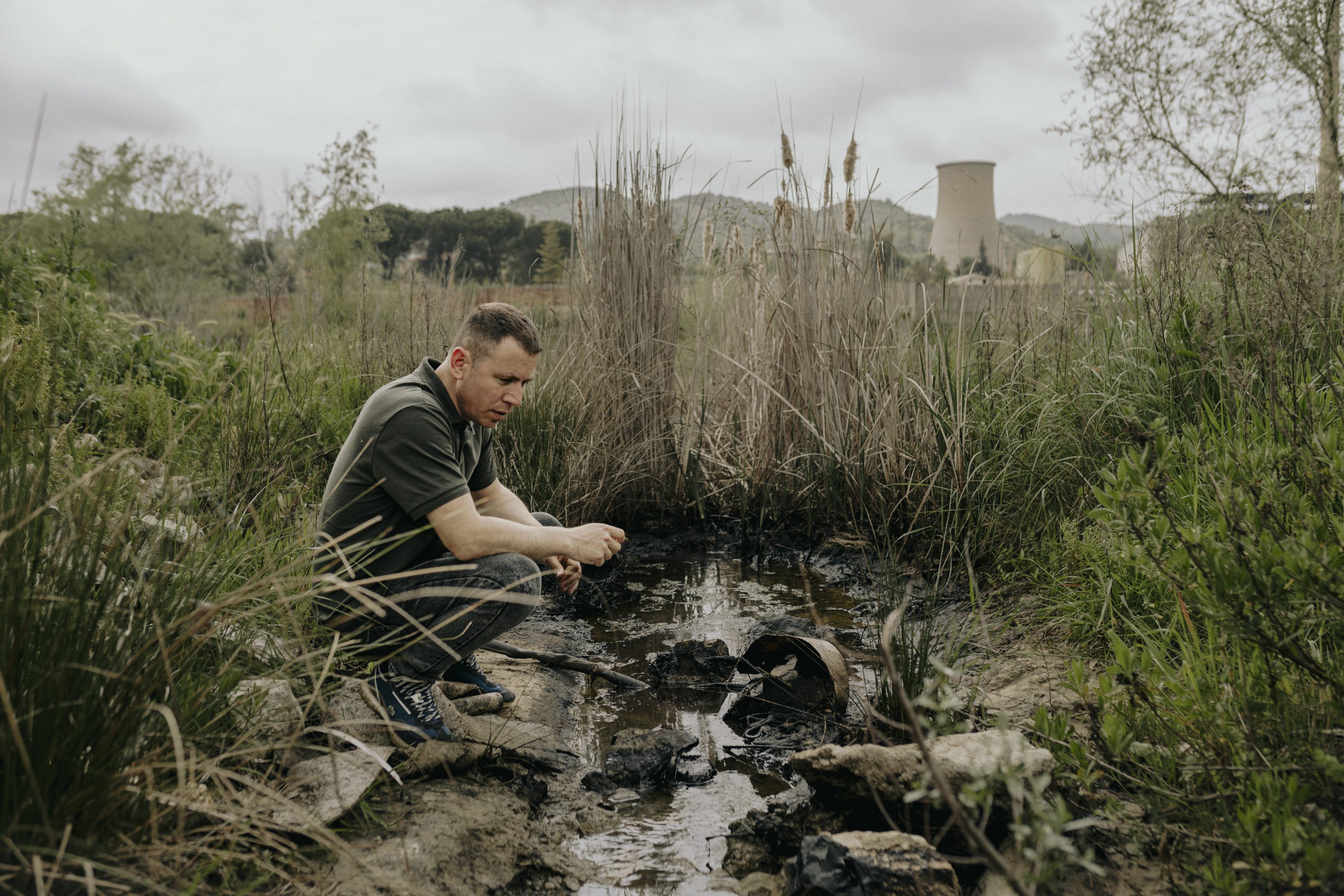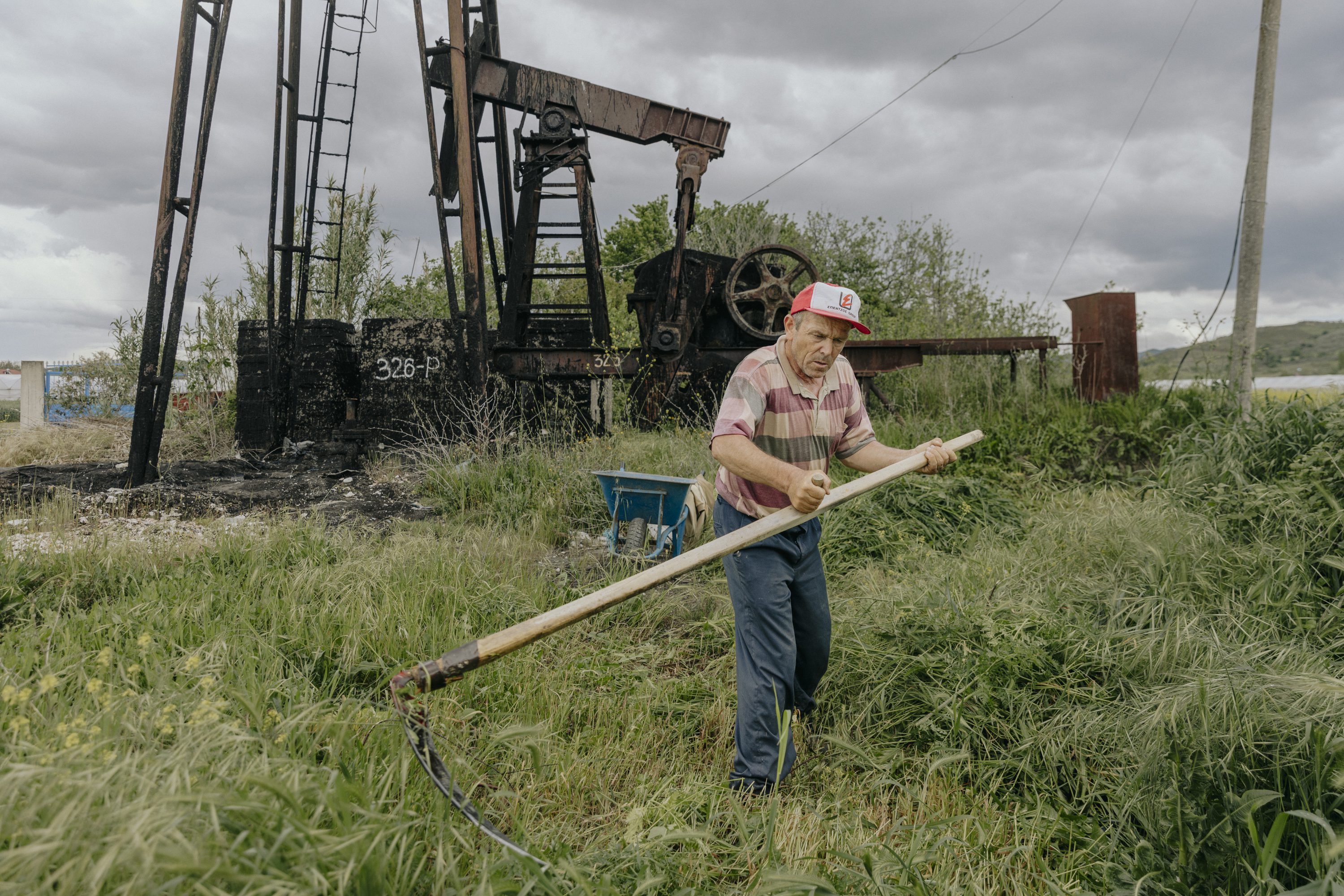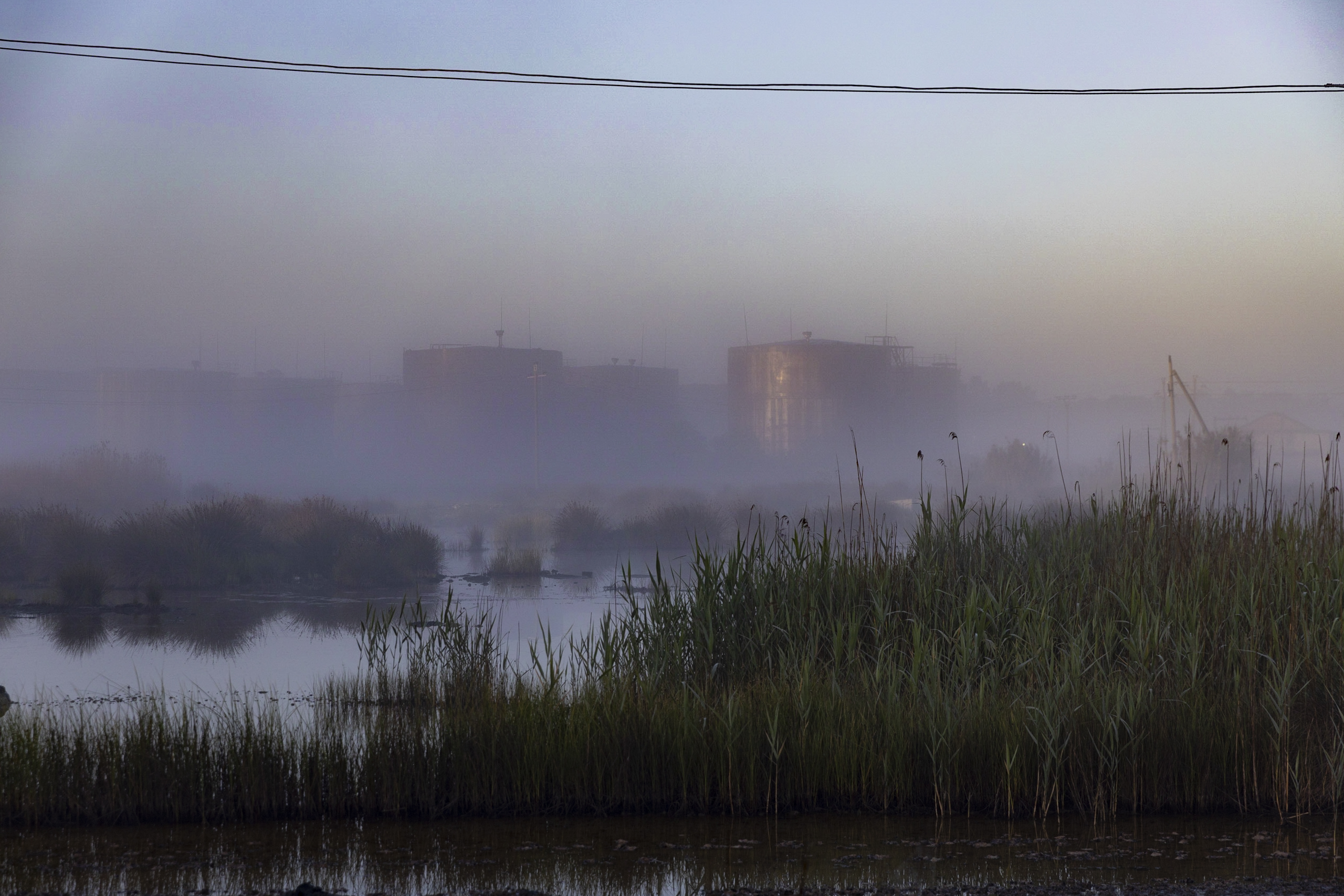Albania, one of the poorest countries in Europe with a per capita income of just $4,500, has a subsoil rich in crude oil, estimated at over 5.3 billion barrels. During the communist dictatorship of Enver Hoxha the country was largely isolated from the outside world, with only the Soviet Union and China exercising any kind of influence. These relationships led to the development of the technological capabilities necessary to begin tapping into Albania's oil deposits.
Since the end of communism, free market capitalism has taken hold and various corporations, including Bankers Petroleum, a Canadian company recently acquired by China's Geo-Jade Petroleum, now control 95% of crude extraction in the Patos-Marzina region.
Lulzim Gishti and his wife Mamude Gishti in their House in Bellin, a village in the middle of the Patos Marinez Oil Field. Their house and agricultural fields are only metres away from Bankers Well J27-A. The smell of oil and gas is a constant in the village. Mamude'slungs and liver have been affected and the couple spend 90% of their pension on medication each month.
A herd of goats in front of Bankers Petroleum well J27-A. The well is located just 200 metres fromthe village of Belina. Villagers complain about regular hydrogen sulfide emissions, a highly toxic gas that smells of rotten eggs.
This seismic shift in the market has caused significant social and environmental issues in the region, from contaminated lakes, oil leaks, abandoned structures and the poisoning of underground water wells to a huge rise in emissions affecting the surrounding villages. The oilfields have rendered large swathes of surrounding countryside unusable with rivers, drinking water aquifers, crops and farm animals all affected by the high rates of pollution.
Jonas Kako met local people and documented the scarred landscape of central Albania around the oil fields to shed light on the impact of onshore oil production on the environment and local communities. The project focuses on Bankers Petroleum's oil production in the Patos-Marinez Oil Field, Europe's largest, located near the town of Fier.
Ylli Baho lives in Zharrez, a village close to Bankers and Alpetrol oil wells. He frequently butchers sheep, goats and calves for family and friends. Produce from Zharrez is considered to be contaminated by the oil, so local farmers struggle to sell their products.
Oil wells owned by Chinese-owned Bankers Petroleum in the Patos Marinza oil field, Europe's largest on-shore oil field.
Residents of the Roma quarter in Fier playing dominos at a local bar. The area is close to a refinery where, oil and chemically polluted water is discharged into the Ganica River, a river considered 'dead. A loading station where oil is loaded for transport to the port of Vlora was built nearby. The smell of gas and oil is ever present and many residents show signs of oil related health conditions.
Oil workers maintaining an oil well near the city of Ballsh. Oil from the well is treated in nearby facilities by Albanian energy company Anio Oil. Xylene and benzene are used to separate the oil from sand and water. The waste water is discharged into a stream behind the facility from where it flows into the Vjosa River.
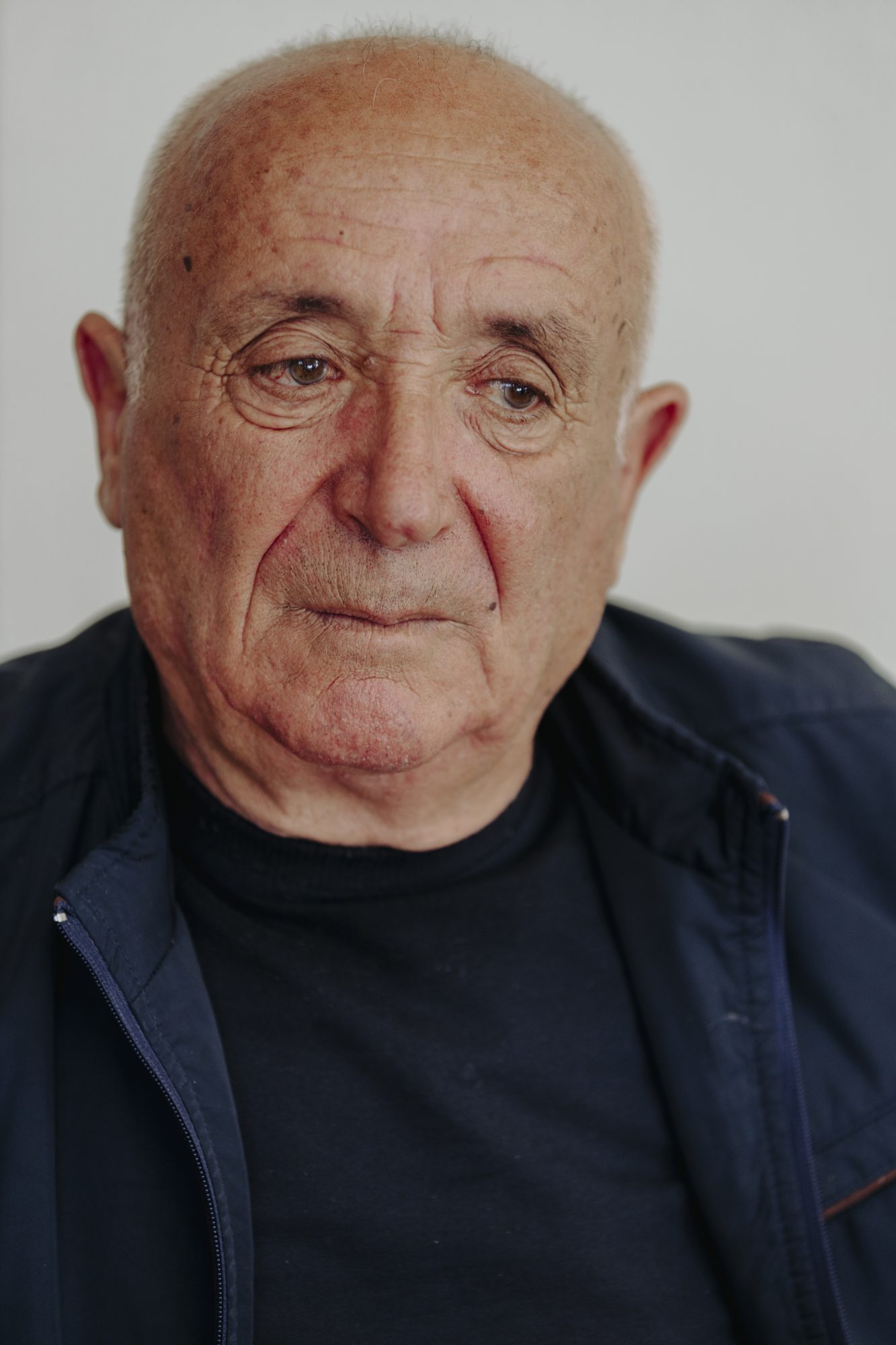
Qani Rredhi, an environmentalist from the Assosiation Zharreza. He is an outspoken activist campaigning against oil pollution in the Patos Marinza oil field. In 2017 he led a hunger strike that resulted in the halting of fracking activities in the field and compensation for house owners whose houses were damaged by seismic events potentially caused by fracking.
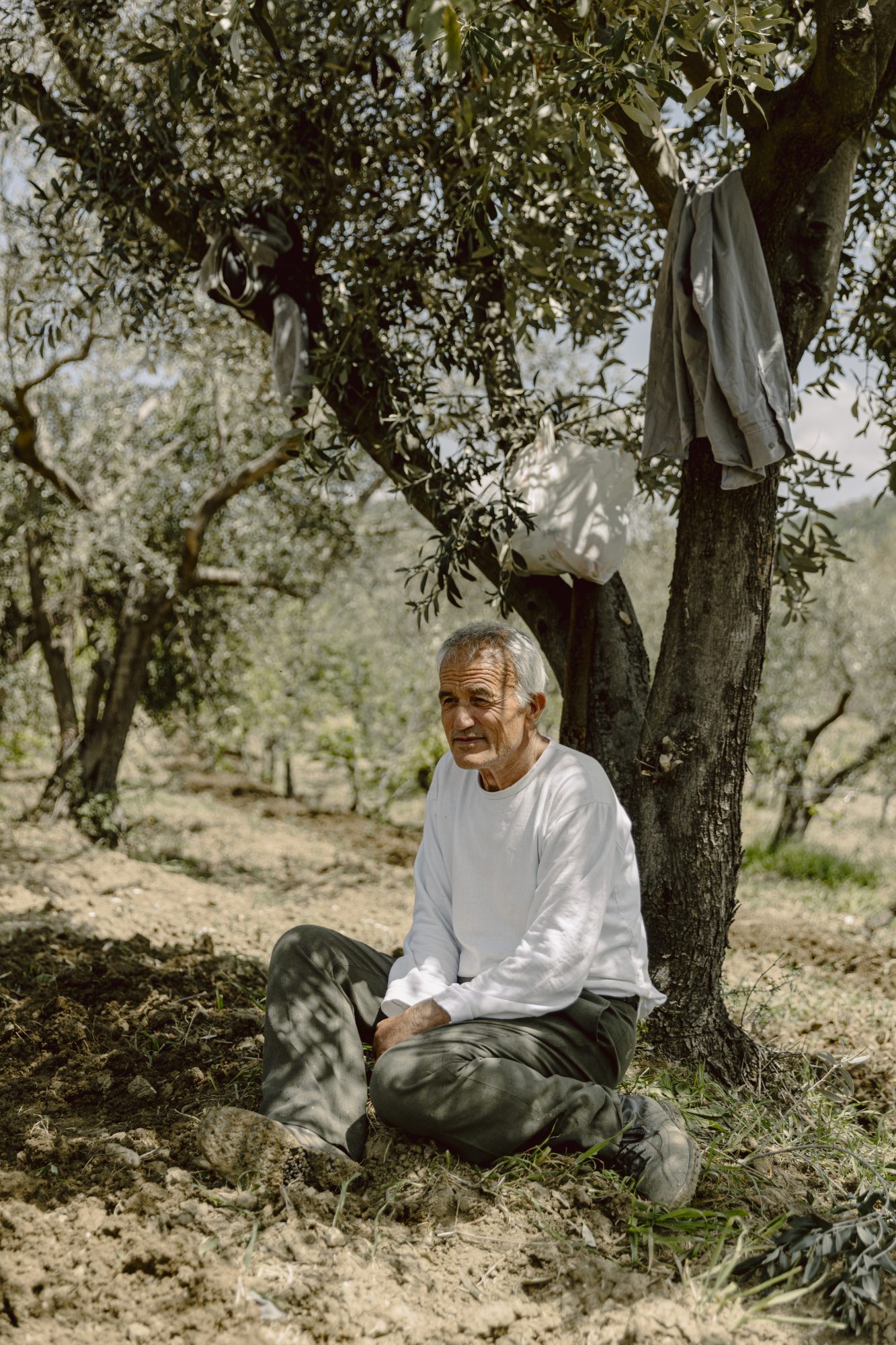
Esat Taullai sits in his olive grove near Ballsh. Due to the pollution caused by Anio Oil, which runs a treatment facility nearby, his trees don't produce any olives.
Run off from a treatment facility owned by Albanian energy company Anio Oil. Here oil is separated from sand and water using xylene and benzene. The waste water is discharged into a stream behind the facility and later flows into the Vjosa River.
Xhimi Grembi lives in Zharrez, a village close to the Bankers and Alpetrol oil wells. Here he stands in front of his house, next to an abandoned oil well. He and his wife have been living next to the well all their life. He suffers from bronchitis. In 2022, 13 residents of the village died from cancer. A request to the health ministry for the causes of the patients' cancers by a local NGO have not been answered.
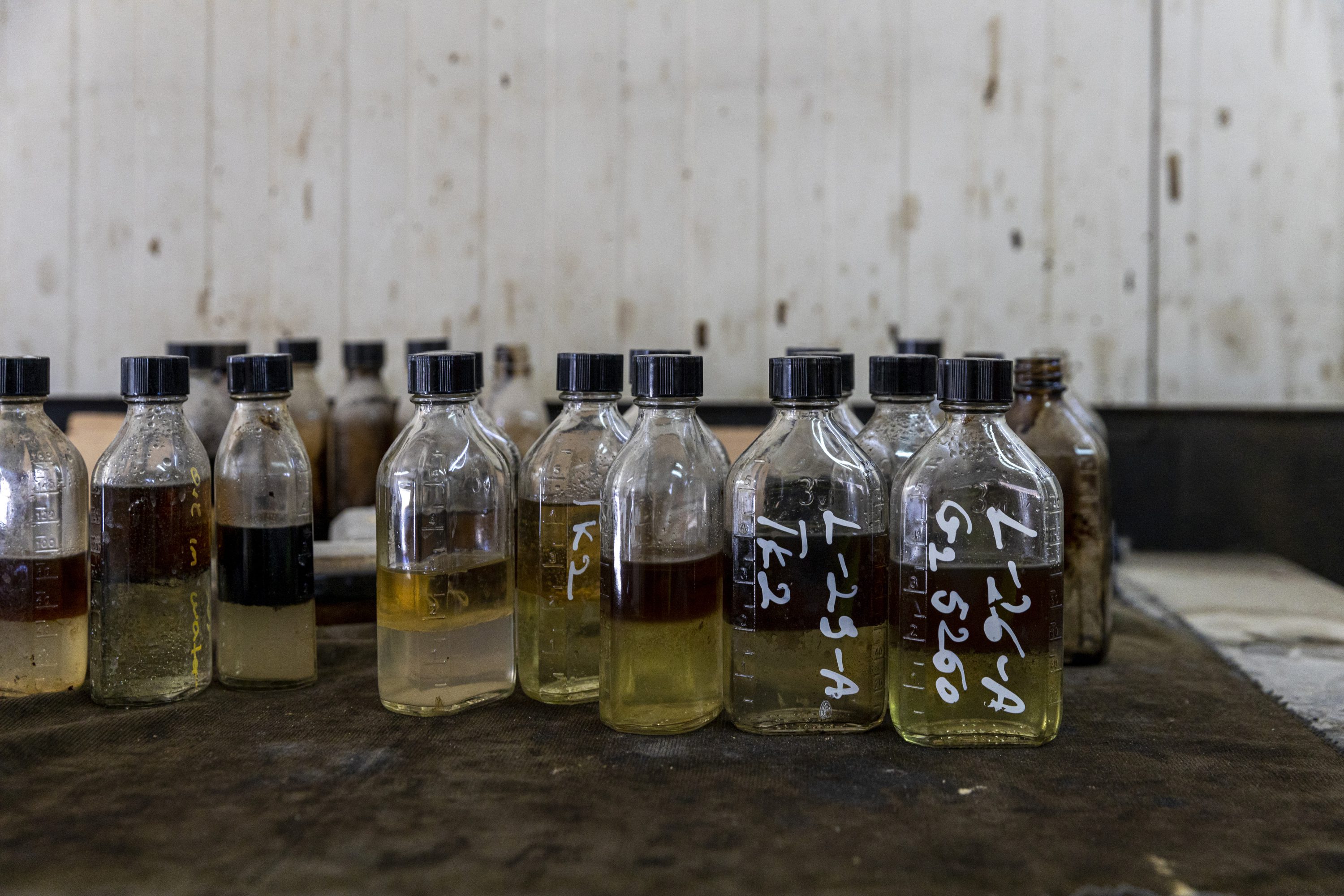
Liquid Samples from the Bankers central treatment facility located in the centre of the Patos-Marinza oil field where oil is separated from sand and water using xylene and benzene.The waste water gets pumped into local waterways.
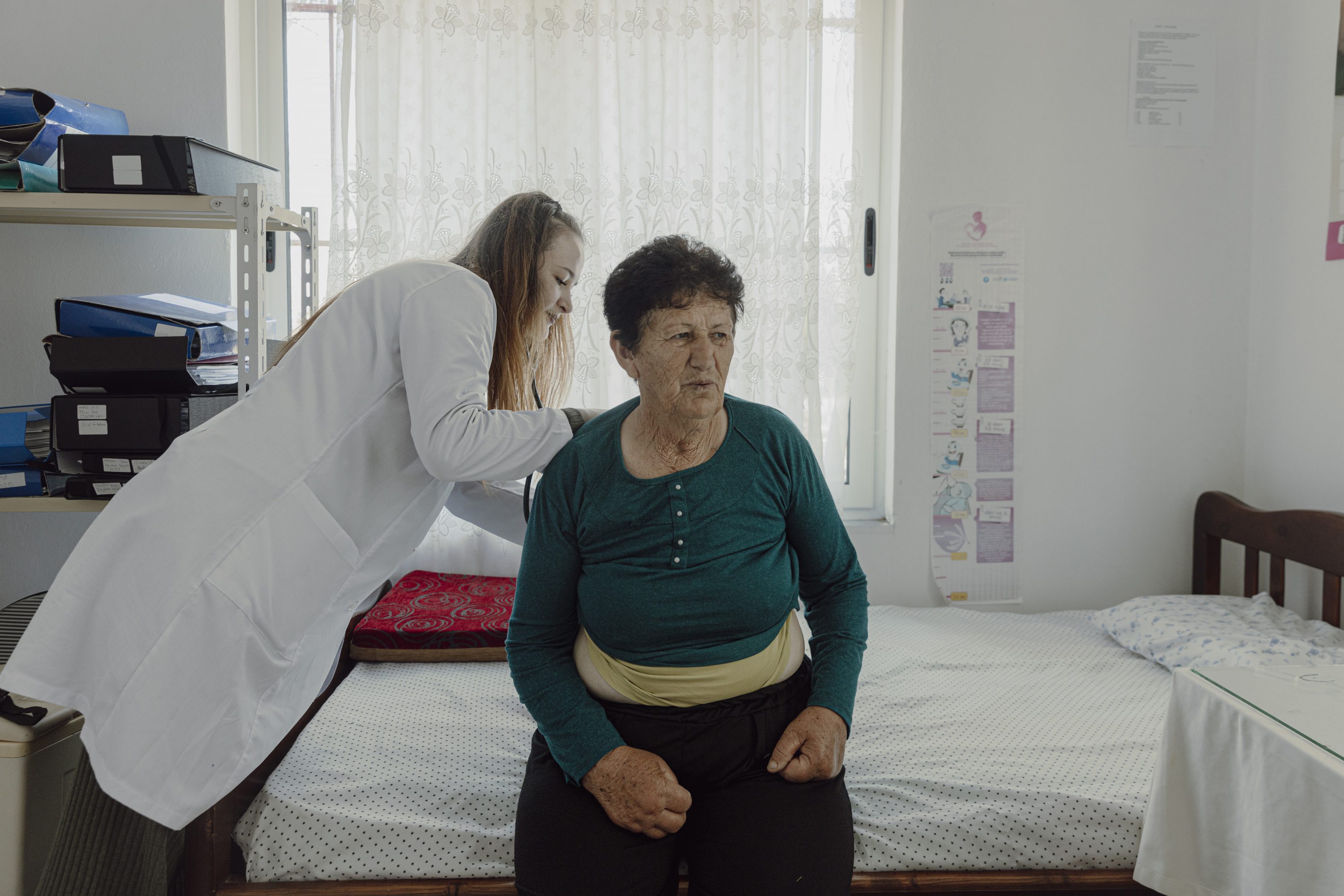
Nurse Elena checking the lung function of Drita Buzi at a state-run health facility in the village of Kallm i Madh. Many residents suffer from chronic lung diseases that are likely caused by exposure to noxious gases from the oil wells.
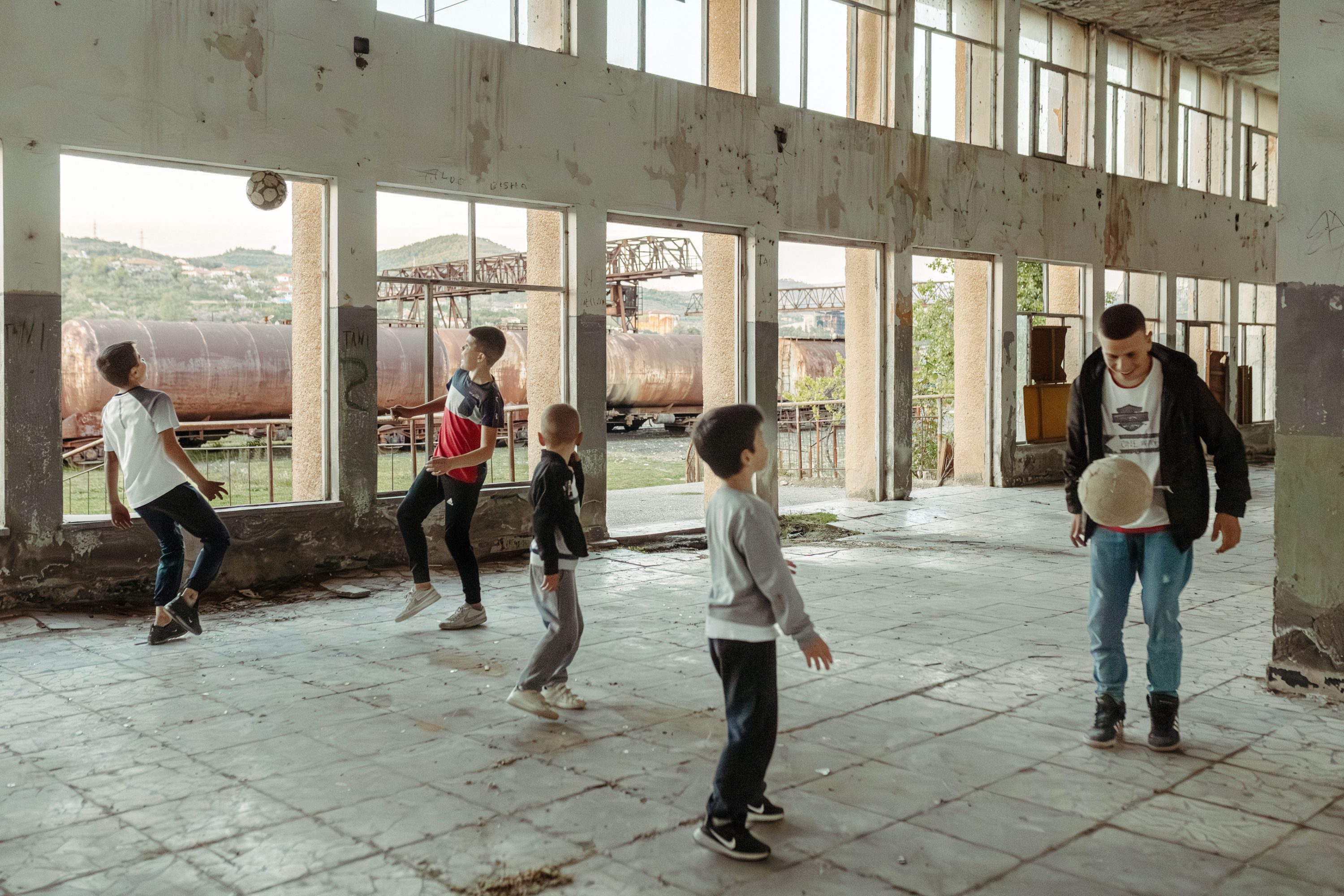
JKA00066ALB
Boys playing football in Ballsh's abandoned train station. Ballsh is a former industrial city where oil from nearby fields was refined but due to mismanagement the refinery was closed and recently people have started to move away.
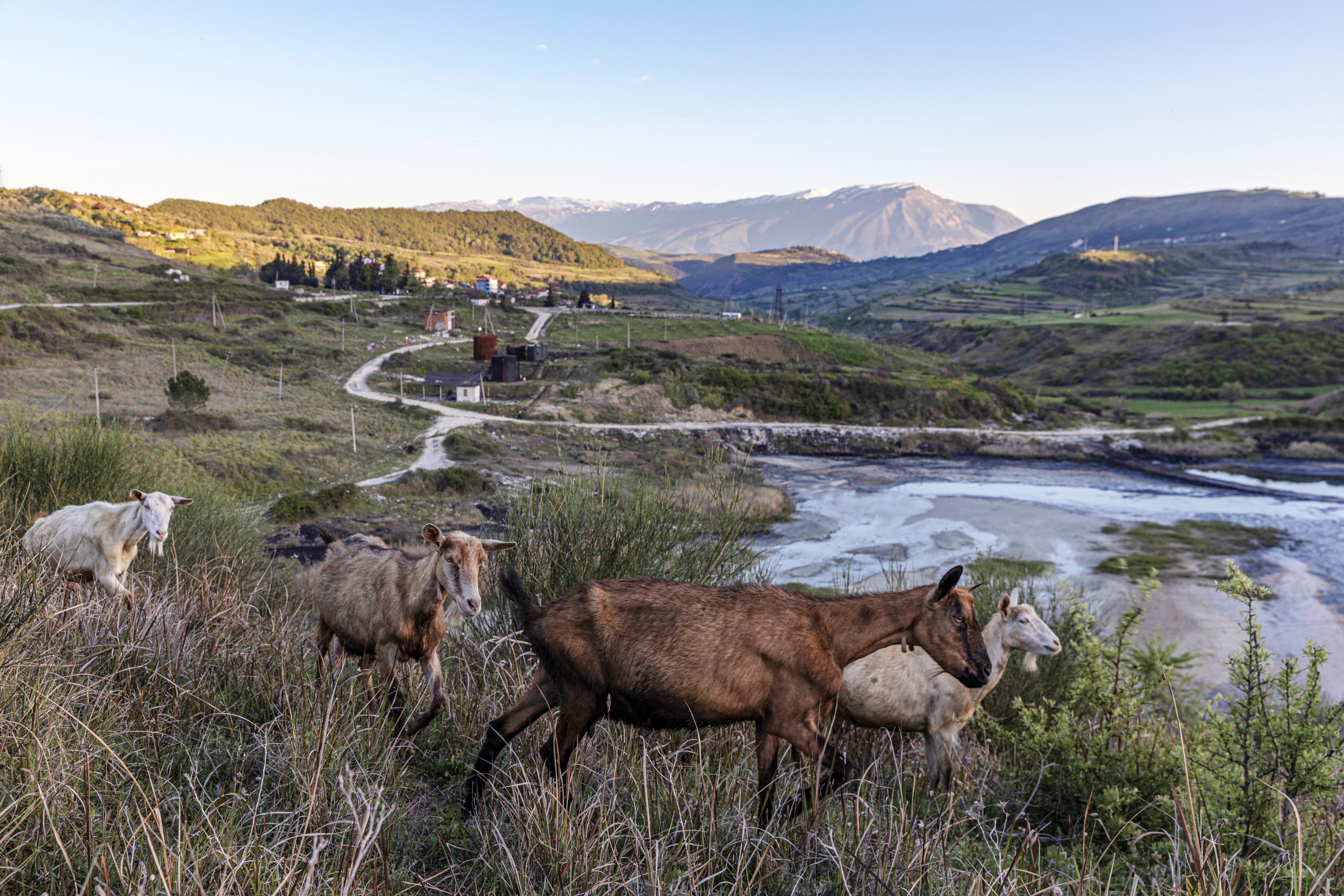
JKA00065ALB
Goats at Rezevuari i Hekalit, a reservoir near Ballsh where polluted waste water from an oil treatment facility owned by Tirana-based energy firm Anio Oil is collected before being released into the Vjosa River.
An oil tank at the central treatment facility located in the centre of the Patos-Marinza oil field. Here oil is separated from sand and water using xylene and benzene. The waste water is pumped back into the ground, while the oil is transported to a loading station near Fier. Environmental activists fear that the ground water is being contaminated by the facility.
Dashnor Xhepaj uses an asthma pump at his home that is close to an oil well. His asthma is likely caused by constant gas emissions from the well.
Patos Marinez oilfield near Fier, the largest onshore oilfield in Europe. 95% of crude oil in Albania is produced by the Chinese-owned Bankers Petroleum.
Oil workers maintaining an oil well near the city of Ballsh. Oil from the well is treated in nearby facilities by Albanian energy company Anio Oil. Xylene and benzene are used to separate the oil from sand and water. The waste water is pumped back into the ground, while the oil is transported to a loading station near Fier. Environmental activists fear that ground water is being contaminated by the facility.
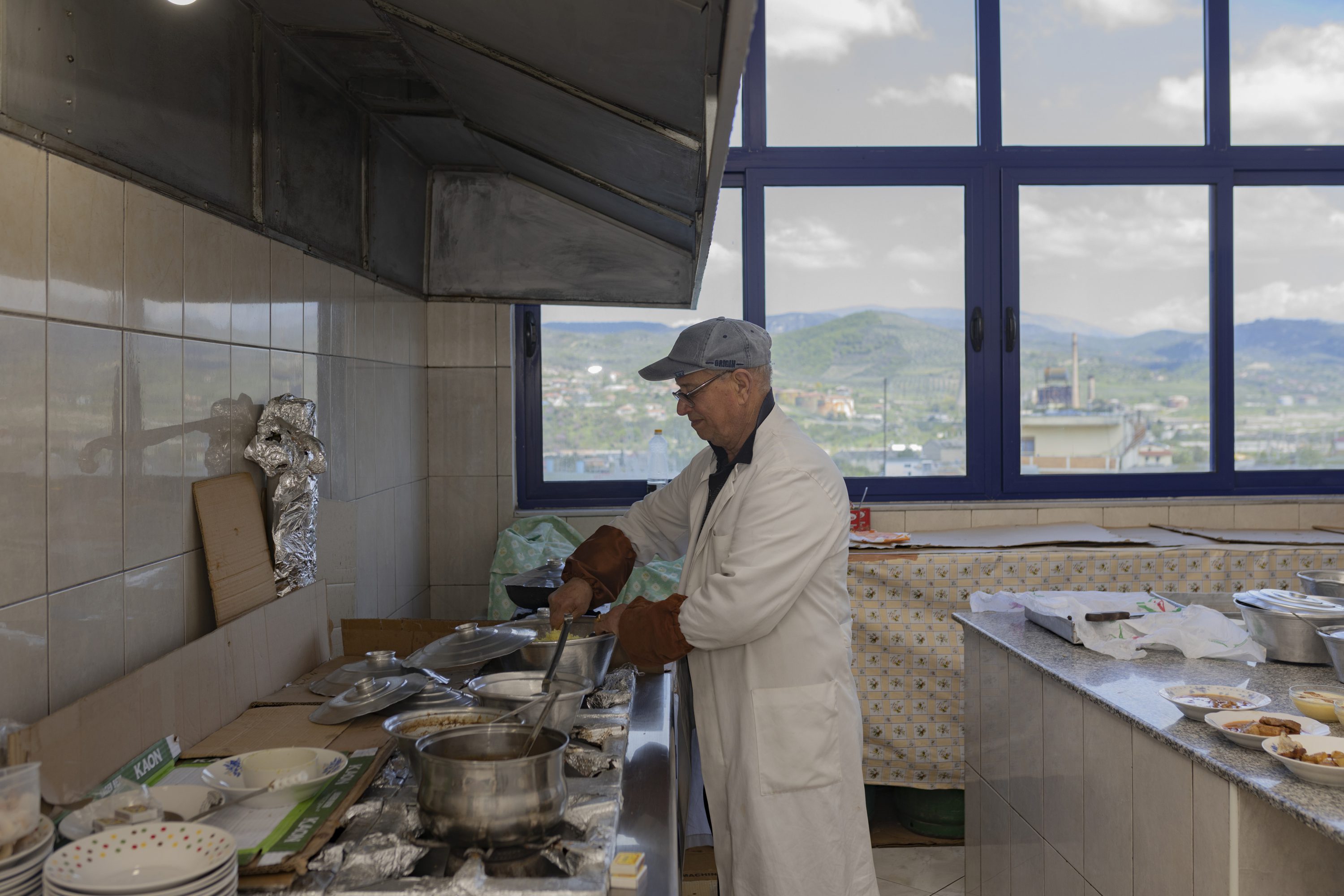
Barjam Mahmutaj, a former employee of the Ballsh Oil Refinery, in his kitchen at his restaurant in Ballsh. Due to the closure of the refinery Ballsh has seen a significant economic decline and Barjan is struggling to keep his 'soup kitchen' running.
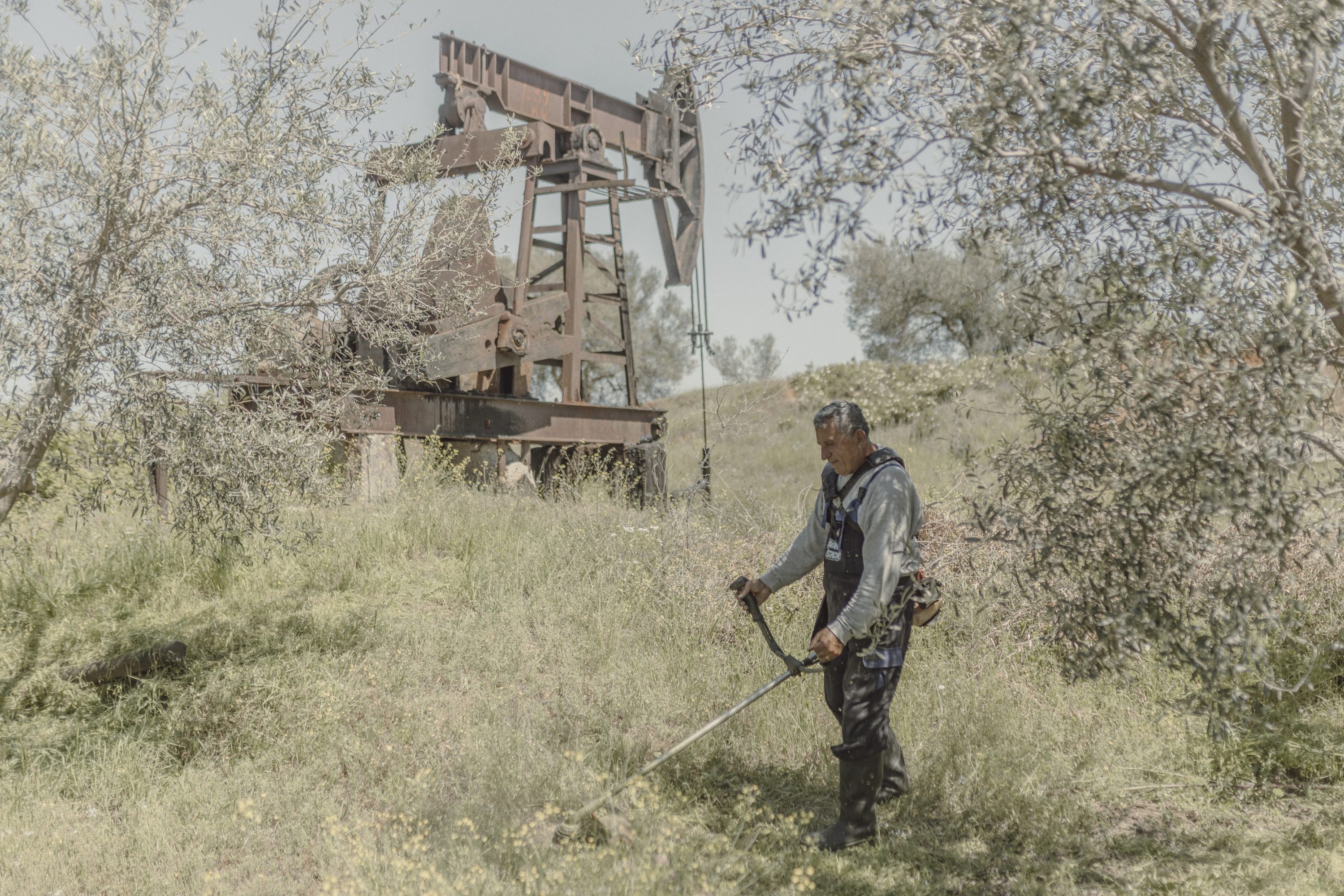
Flamur Shpata uses a streamer to cut grass in his olive grove which is near an oil well operated by Alpetrol. Due to pollution from oil and gas facilities Falmur's harvests have declined. He only produces around one tonne of olives each year, significantly less than he used to.
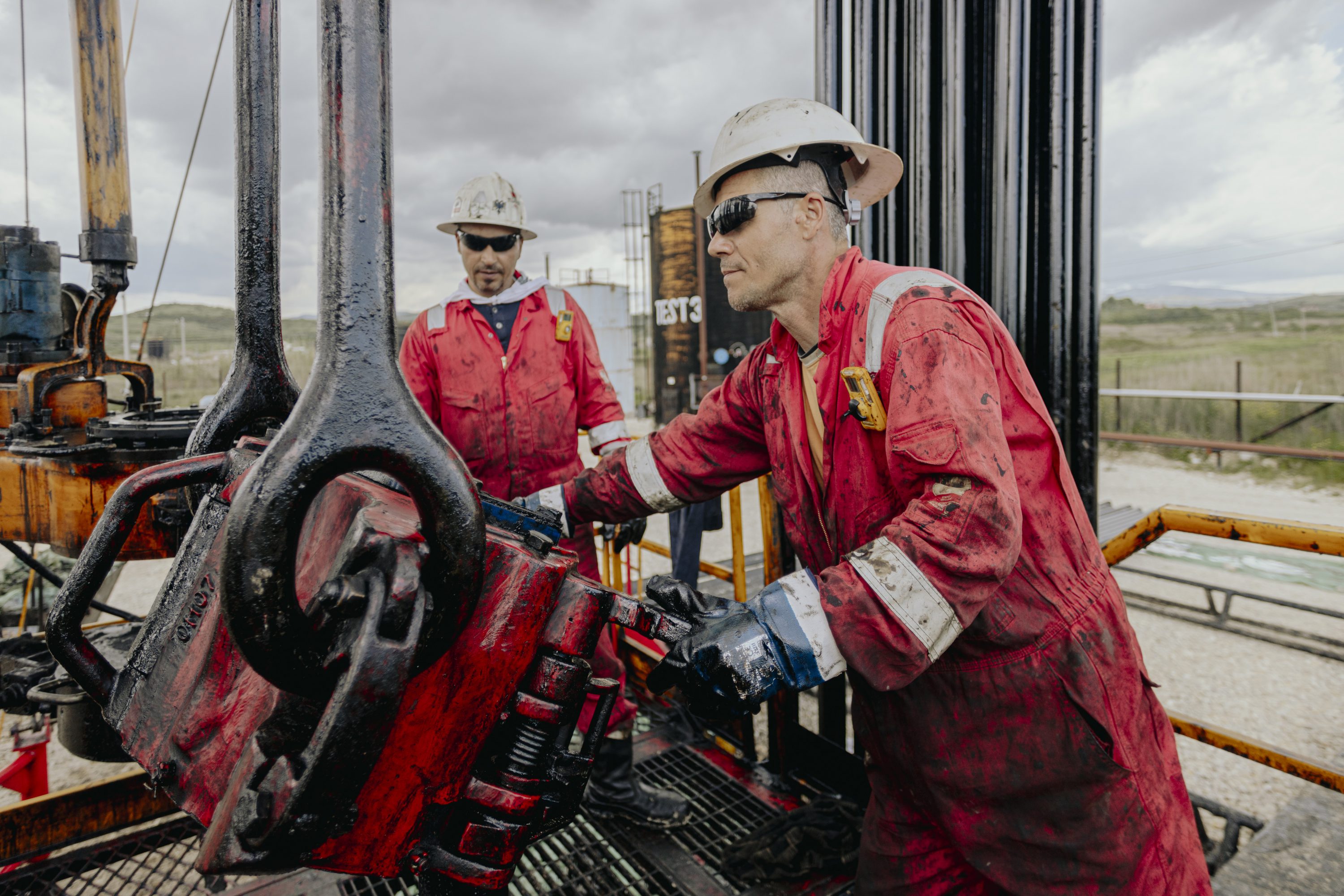
Workers from the Chinese-owned Bankers Petroleum maintaining an oil well near in the Patos Marinez oil field. While workers always wear gas detectors, local residents don't know if they are being exposed to dangerous gases.
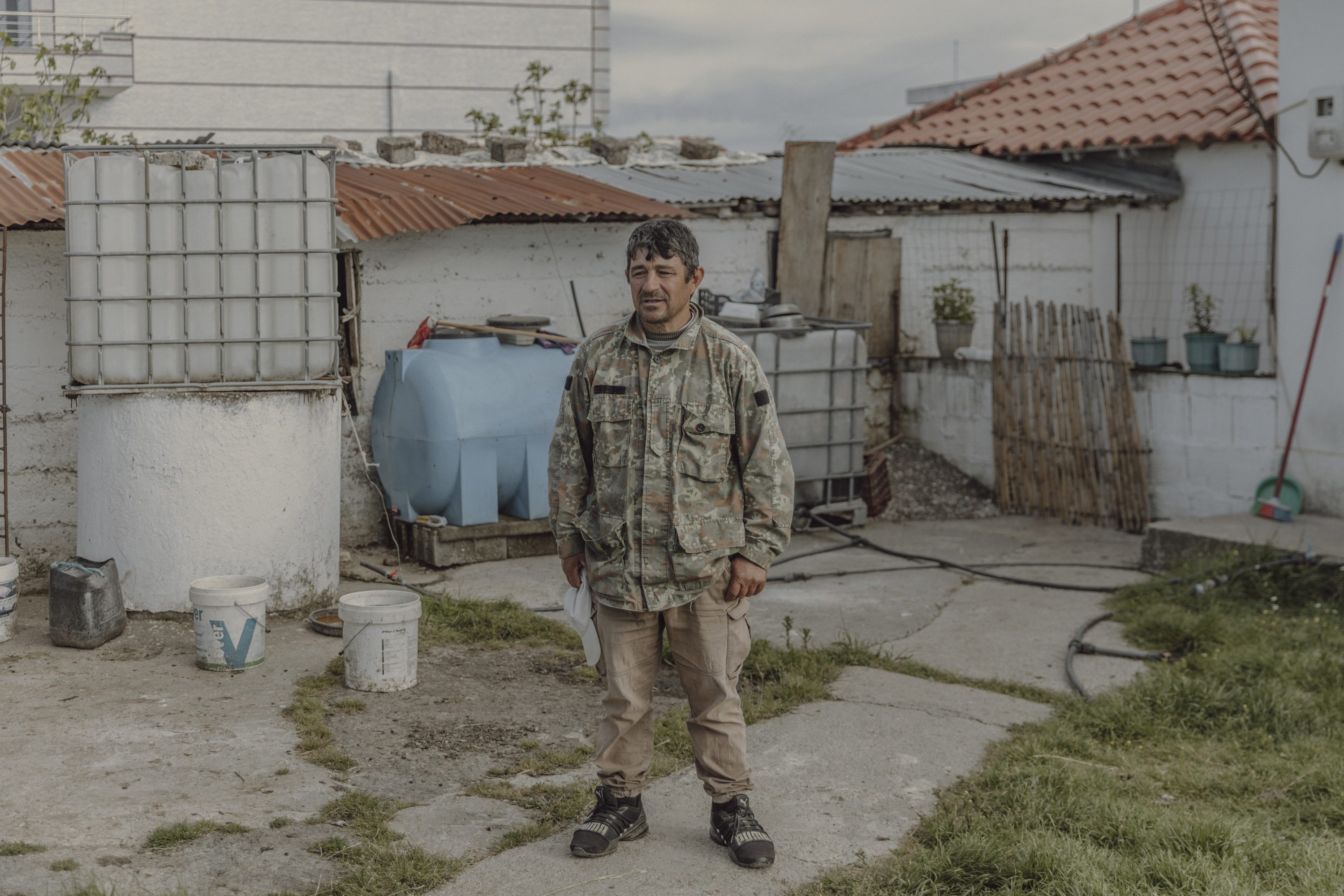
Artan Buzi (50) in front of his defunct water well in the village of Kallm i Madh. As the water shows signs of oil pollution he has stopped using it and has to haul in water from further afield every weekly. The municipal water only runs for a few days a week.
Arben Cela, a retired worker from the local refinery, tends his sheep at the Alpetrol oil treatment facility near Ballsh. The smell of gas and oil is ever present.
A woman drinks from a public standpipe in the Roma quarter of Fier. The mains water supply in Fier is not suitable for human consumption but Roma people drink it due to economic hardship. The area is close to a refinery where, oil and chemically polluted water is discharged into the Ganica River, a river considered 'dead'. A loading station where oil is loaded for transport to the port of Vlora was built nearby. The smell of gas and oil is ever present and many residents show signs of oil related health conditions.
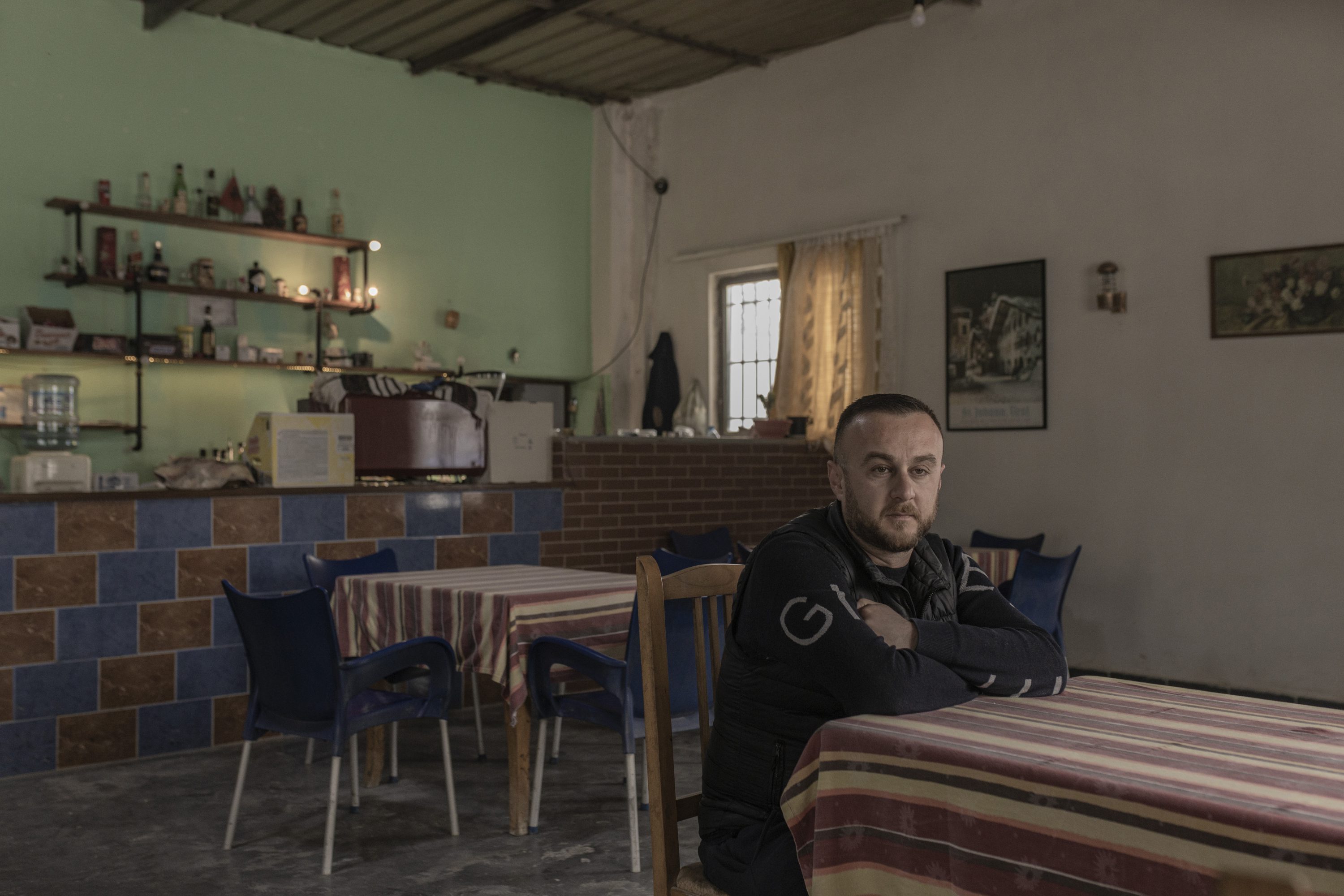
Xhimi Ruko, employee and leader of a strike at Bankers Petroleum, sits in the 24-hour bar where workers meet after their shift. Since Bankers Petroleum was taken over by a Chinese company in 2016 their workers have not received pay rises in line with inflation and overtime remains unpaid.
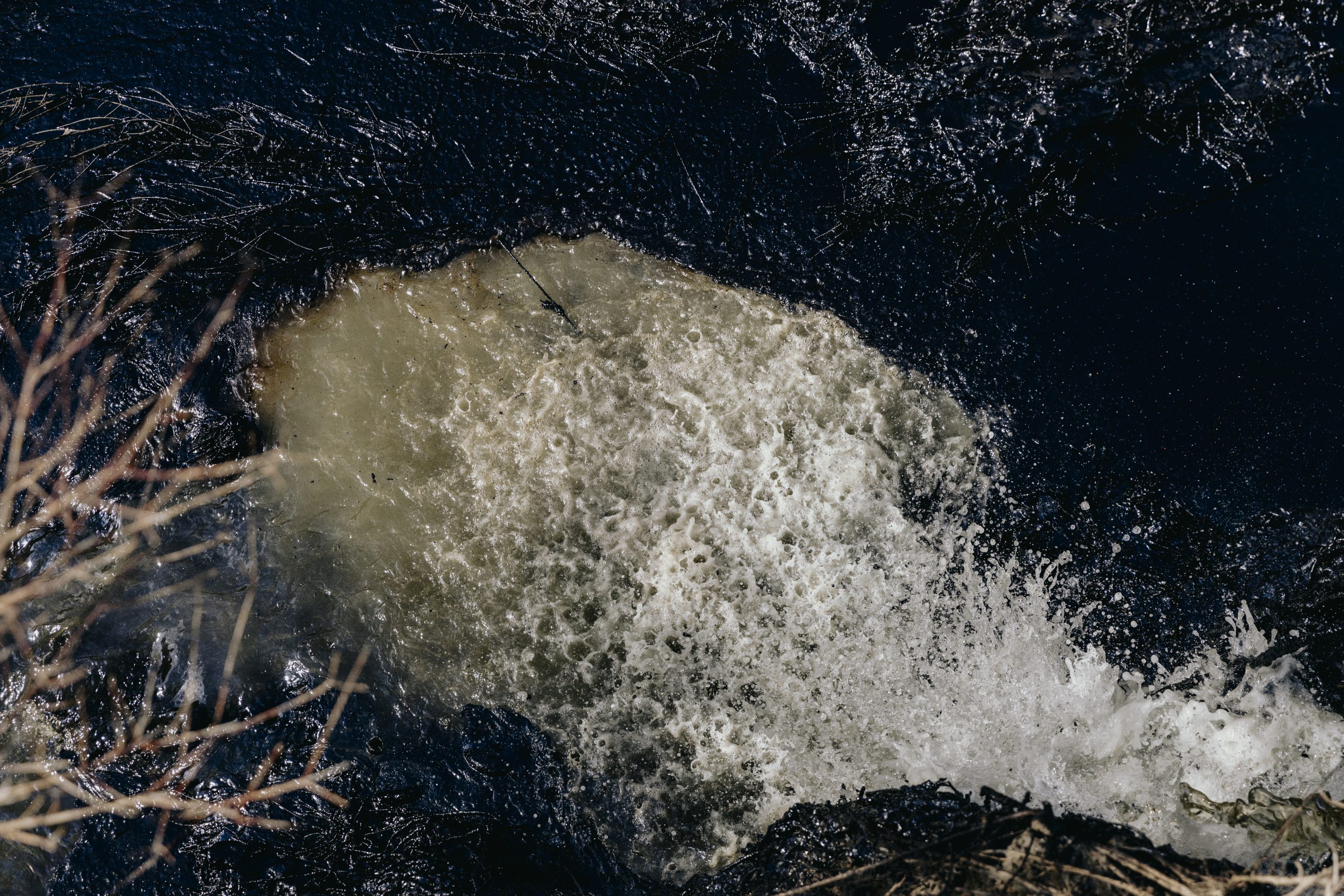
Rezevuari i Hekalit, a reservoir near Ballsh, where polluted waste water from an oil treatment facility owned by Tirana-based energy company Anio Oil is collected before being released into Vjosa River.
Saimir Dine (35), an environmentalist and activist of the local NGO Association Zharreza, that has been advocating against the pollution from the oil industry, checks a stream running into Gjanica River for oil residue. The NGO has recently published a study that found huge concentrations of chemicals and oil in the Gjanica River, likely caused by treatment facilities in Ballsh and Fier.
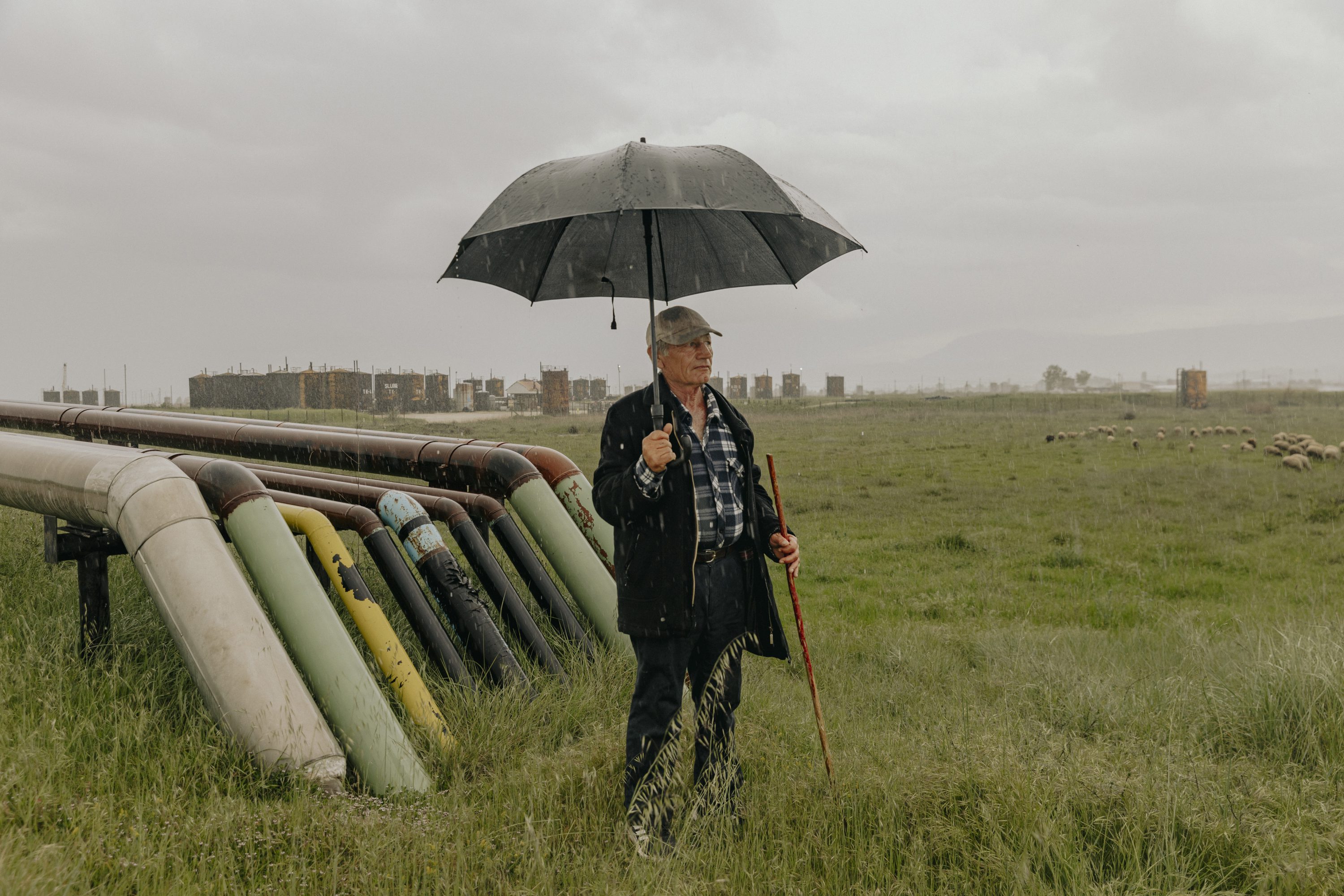
Agron Kumaraku herds his sheep near an oil well in the Patos Marinza oilfield. The people from the villages of Marinez and Belina, live close to the wells.
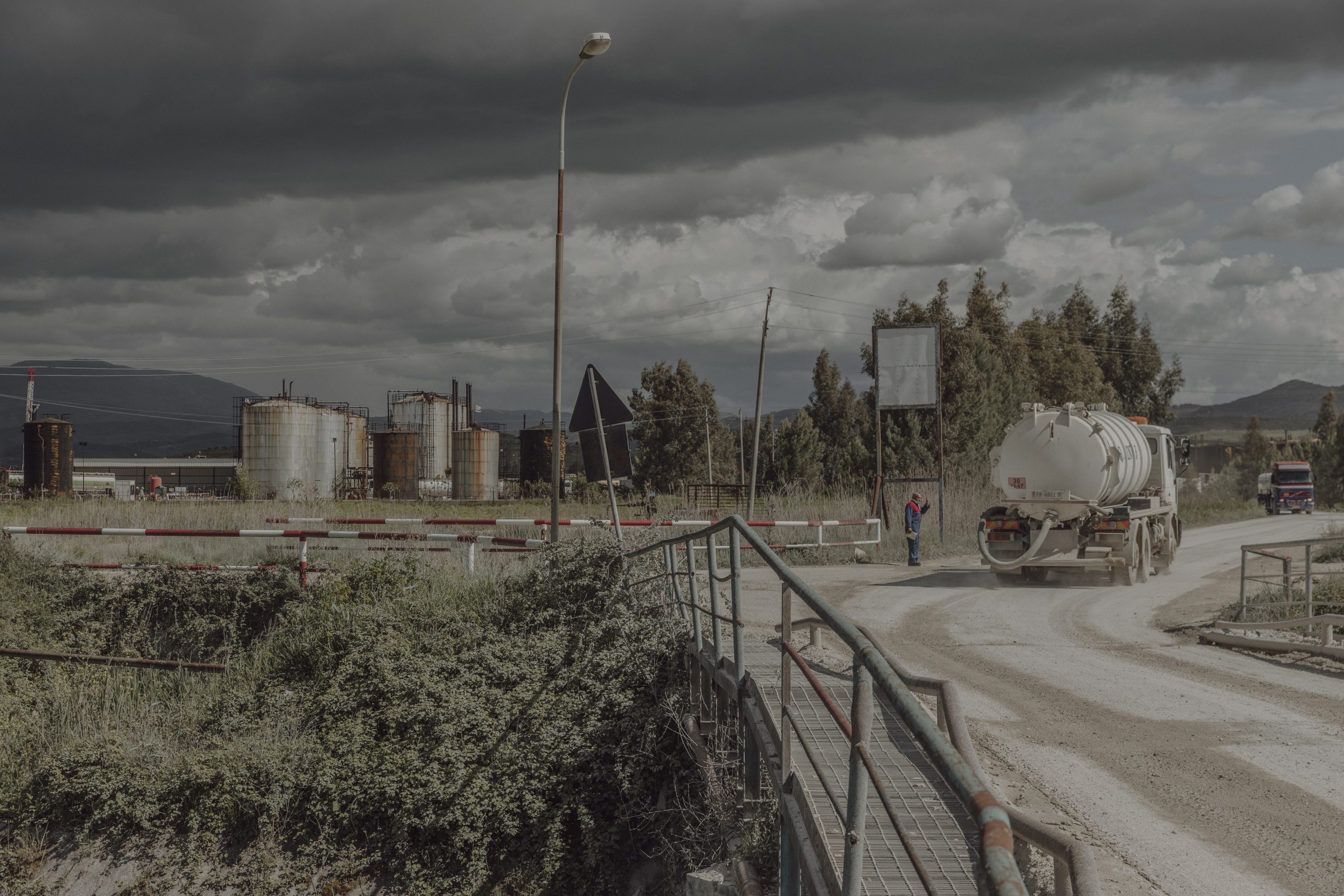
The main road through the Patos Marinez oil field, the largest onshore oil field in Europe.
Ilir Dielli cuts grass in the village of Zharrez, just metres from a defunct oil well owned by Alpetrol.
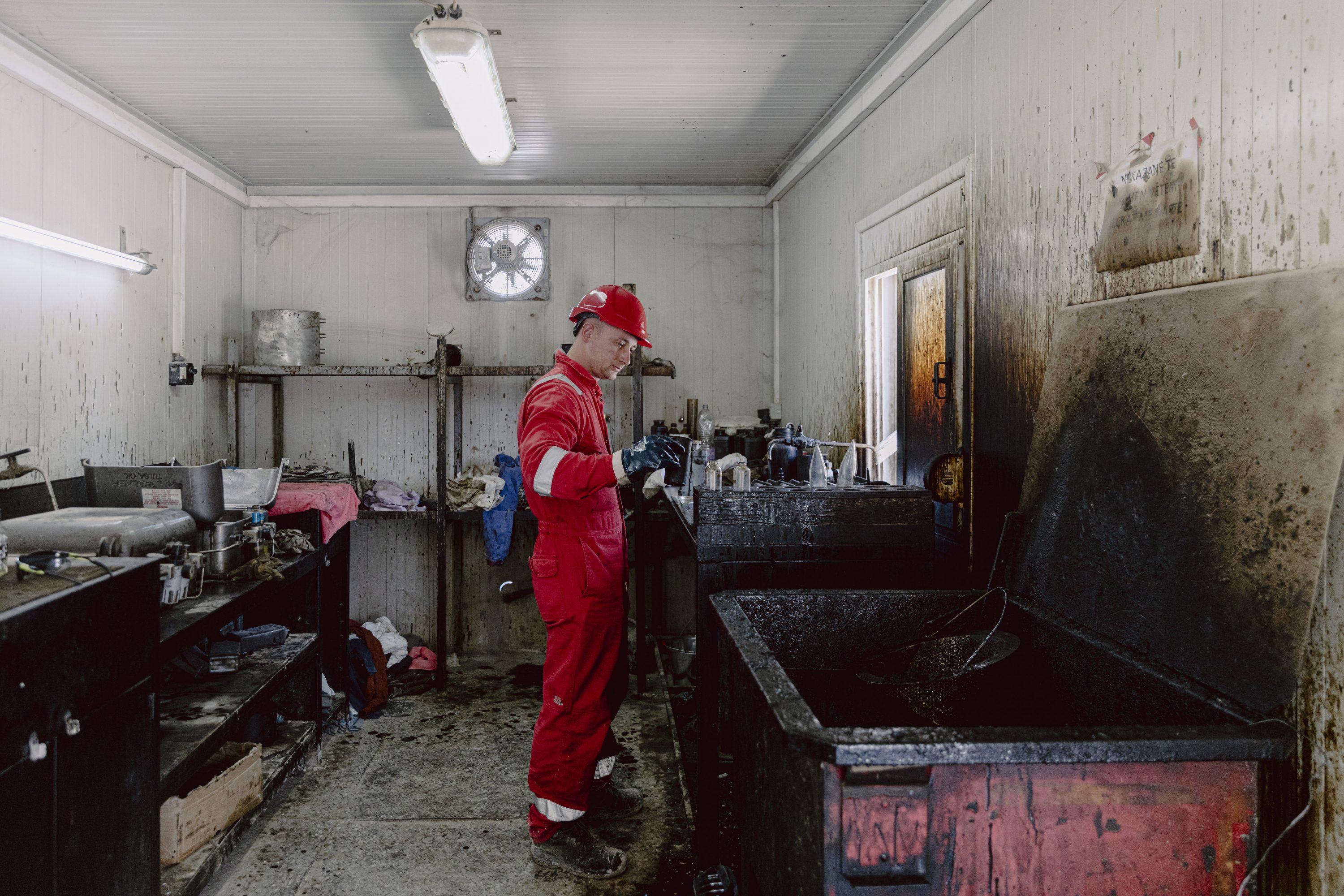
Ani Arapi, a technician from Bankers Petroleum, checks the consistency of an oil sample from a storage container at the central treatment facility in the Patos Marinza oil field.
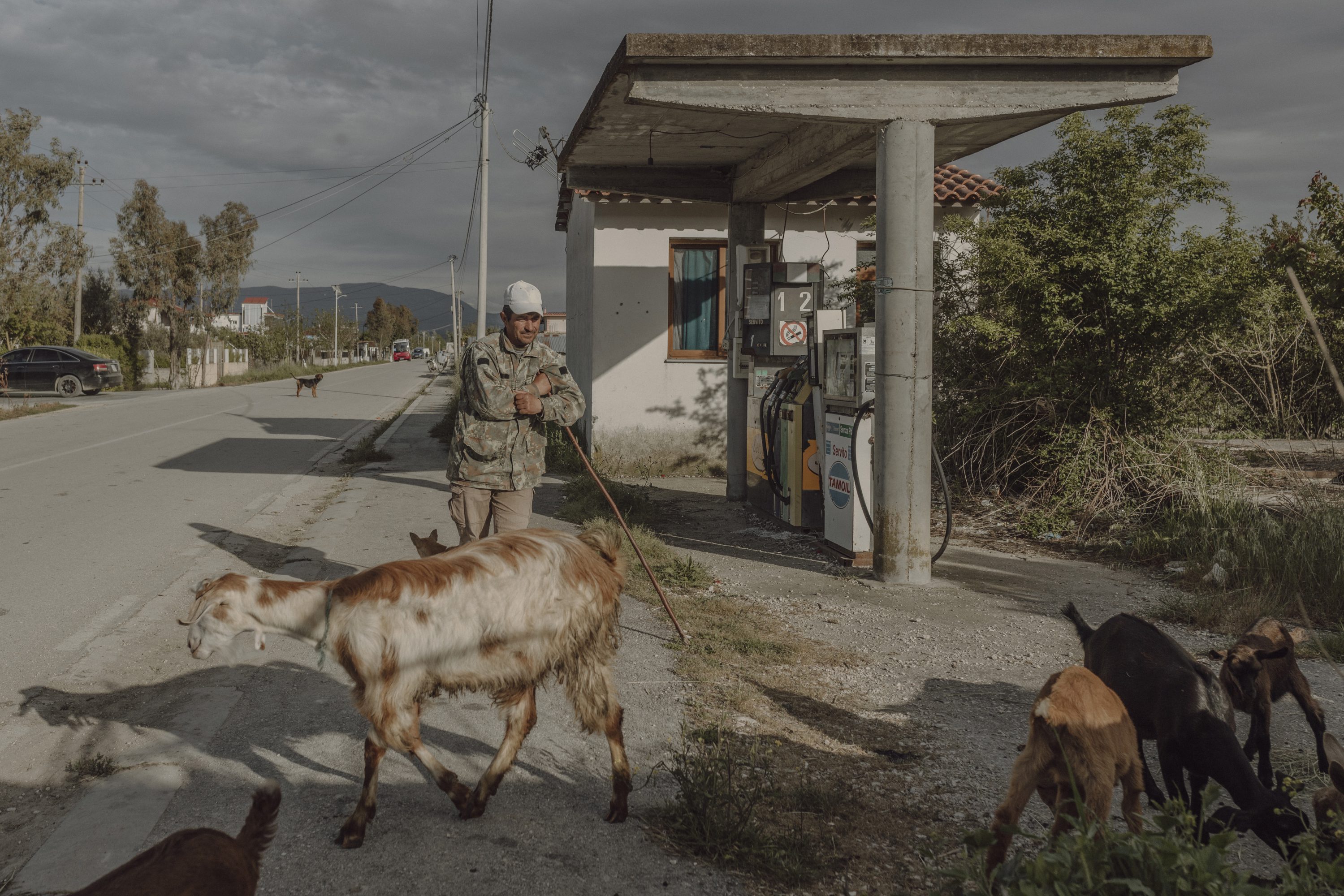
Artan Buzi (50) herds his goats near a roadside petrol station in the village of Kallm i Madh. As the water shows signs of oil pollution he has stopped using it and has to haul in water from further afield weekly. The municipal water only runs for a few days a week.
A defunct oil refinery owned by Alpetrol at sunrise in the Patos Marinza oil field, Europe's largest onshore oil field.

